- About us: Ecotourism in Tibet
- Trip Leader
- Mountain Reverie
- Nyenbo Yurtse Trek
- The Spirit of the Glacier: Trekking Amnye Machen
- Sutras and Saddles
- Red Rocks and Monasteries
- Prayers in the Plateau
- Pilgrim’s Pride
- Xunhua to Rebkong Backpacking
- Trekking Legendary Minya Konka
- Yuzhu Feng Expedition
- The Headwaters of the Yellow River
- Thangka Paintings and Yak Yoghurt
- Kanbula and Labrang
- Wild Golok: The tribe of the Yellow River
- YouNing Monastery Day trip
- Shachung Monastery and day hike
Qinghai Lake Day Trip
- Sharzong Ritod Monastery Day Trip
- DDQ Wild! Qinghai, Western China
- DDQ Wild! Mount Rinjani, Indonesia
- DDQ Wild! Ulaanbaatar, Mongolia
- DDQ Wild! Chiang Mai, Northern Thailand
- Laji Mountain one day team building
- Team building Weekend Event
- Best season for travel
- Travel Info
- Thailand & SE Asia
- Lhasa and Central Tibet
- Reviews & Testimonials

What is Tourism Leakage?
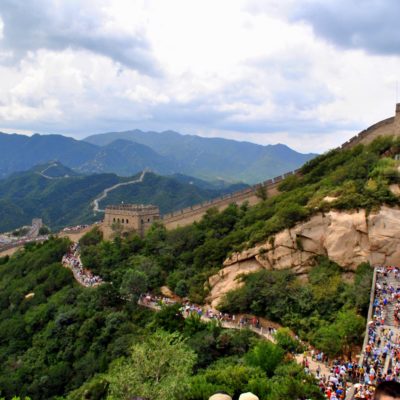
In the study of tourism, tourism leakage is the way in which revenue generated by tourism is lost to other countries’ economies. Leakage may be so significant in some developing countries that it partially neutralizes the money generated by tourism. In this article we will explore what contributes to tourism leakage and how we can stop it.
Try to think about the money you spent the last time you went on an international holiday.
How were your expenses distributed?
What were the most significant costs?
Were there cost of transportation such as airline tickets and airport transfers?
How about accommodation costs and guided excursions and tours?
What about the food and drinks you enjoyed?
Maybe you went shopping too.
Now ask yourself, what proportion of your total holiday expenditure contributed to the local economy of your chosen destination?
When we break down our holiday expenses and start to analyse who are on the receiving end of our money spent, we find that in most cases only a fraction stays within the local community. Imagine a holiday where you fly with an international airline, stay at an international hotel chain booked through a multi-national hotel agent. The hotel has foreign management and staff to meet the language and service training demands by international tourists. The food and drinks you enjoy are characterised by imported products to satisfy international taste buds and give the comfort of familiarity in a foreign setting. The souvenirs are mass produced in another country with cheaper labour costs, and your tour guide is your fellow countryman.
This is not an uncommon holiday setup. This is what we call ‘tourism leakage’, the phenomenon where the vast majority of tourism revenue leaks out of the local economy and into the pockets of big international companies.
Why is tourism leakage a problem?
Tourism has a fantastic potential to create local jobs, boost community development, infrastructure, and education. However, these benefits are hampered by a tourism setup, such as the above. The example is not uncommon. It is, in fact, how many of us spend our holidays. But not only does tourism leakage prevent socio-economic benefits from reaching the communities, the local residents are often the unwilling recipients of the nuisances and problems related to tourism. These negative impacts can for example be inflated prices, shortage of water and other resources, increased wastage, and overcrowdedness.
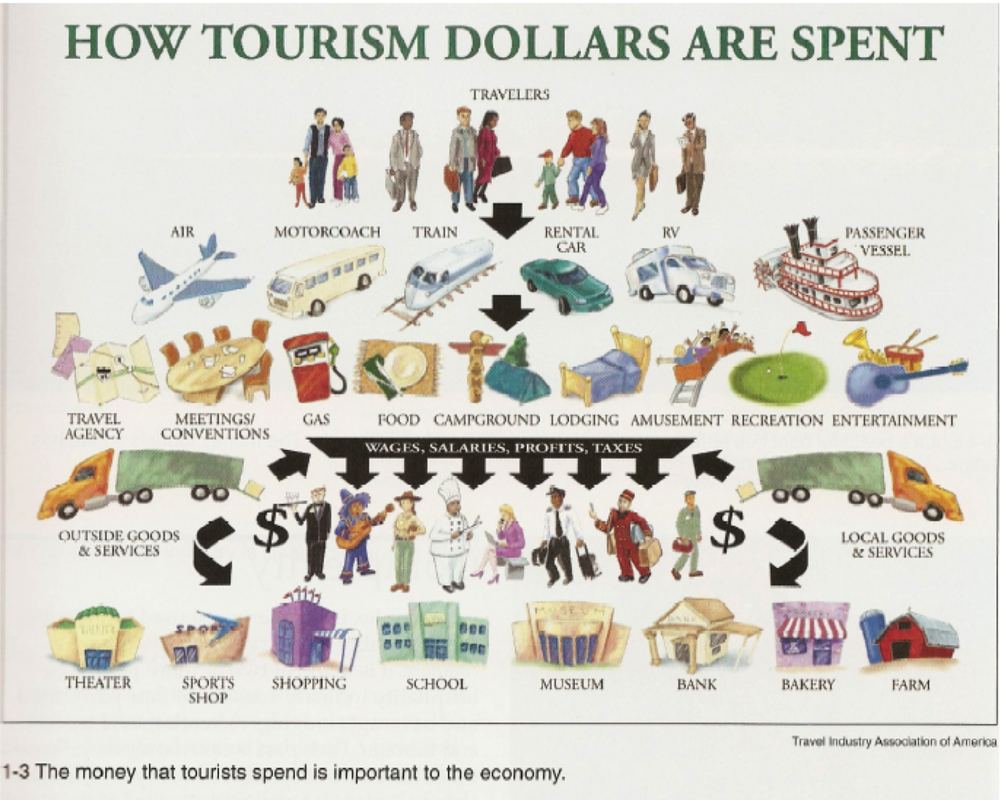
A Study of Tourism Leakage in Thailand
A study of tourism ‘leakage’ in Thailand estimated that 70% of all money spent by tourists ended up leaving Thailand (via foreign-owned tour operators, airlines, hotels, imported drinks and food, etc.). Estimates for other Third World countries range from 80% in the Caribbean to 40% in India.
Leakage is not restricted to less-developed countries. Australia experiences a significant leakage effect from Japanese tourists. Though they spend the most per capita of all tourists to Australia, much of what they spend is through Japanese travel companies, Japanese hotels, and other foreign-owned businesses. There is thus significant leakage to Japan’s economy.
Leakage not only varies from country to country, but also from industry to industry. High-income tourism may well significantly increase leakage, as that industry likely involves importing more goods and services than usual. Ecological or adventure tourism may exhibit a very small degree of leakage, however, as they place value solely on what the host country has to offer.
Effect of Tourism Leakage
As a result of the leakage effect, tourism industries in developed countries often are much more profitable per dollar received than tourism in smaller countries. Islands, in particular, suffer from significant leakage. In countries such as Turkey and the United Kingdom, the benefit to the economy from tourism is twice the dollar amount spent by tourists. In smaller places, such as Micronesia and Polynesia, that benefit is half the dollar amount spent. Some locations have managed to nullify the leakage effect almost entirely – New York City claims to generate seven dollars for the local economy per dollar spent by tourists. Some estimates of the degree of leakage claim only 5% of money spent on tourism remains in a developing country’s economy.
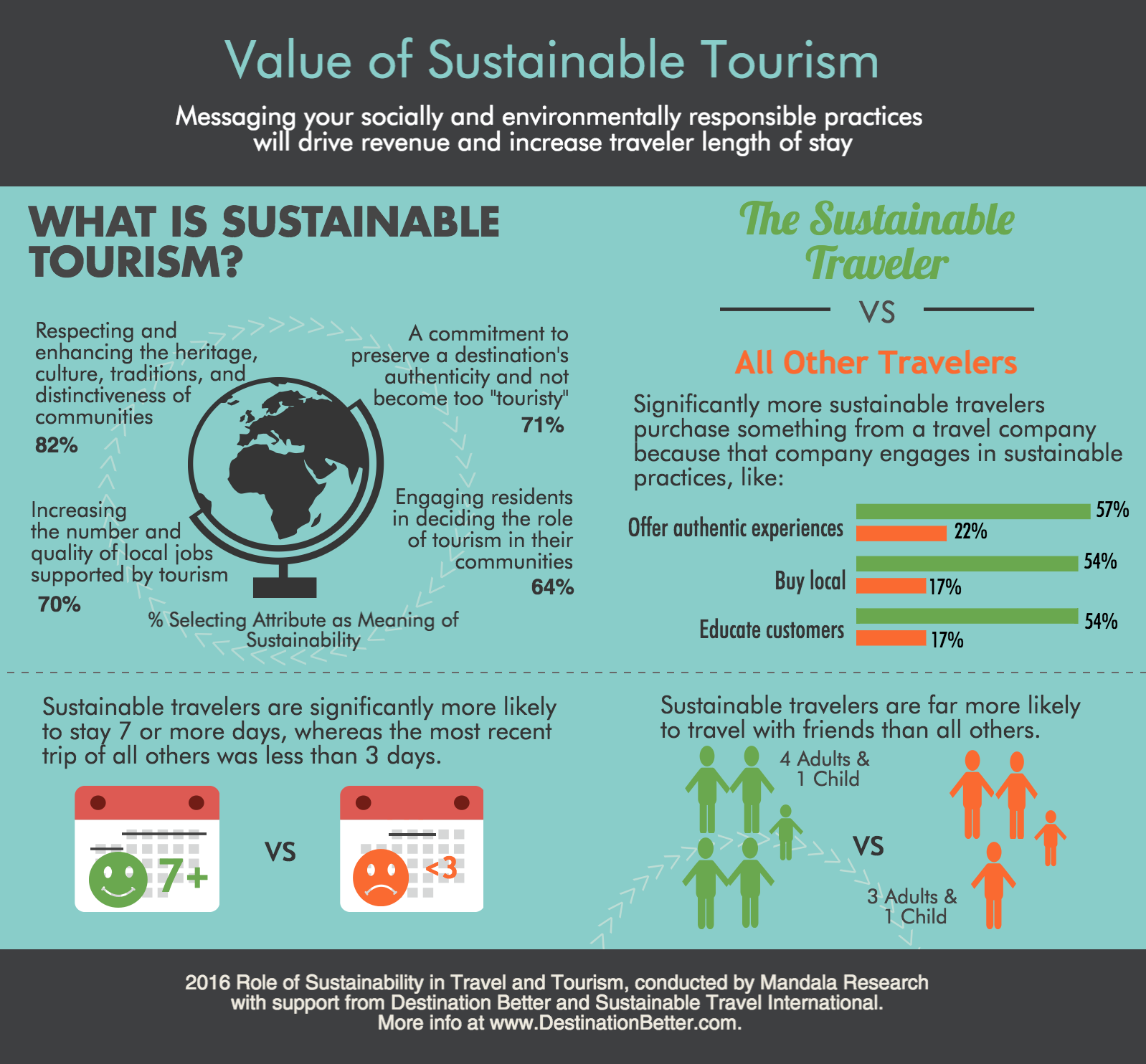
What can you do to minimize tourism leakage?
Be adventurous, experience the destination you choose to visit.
Eat, sleep, and explore locally. Immerse yourself in local language, customs, and culture, and embrace the fact that the world is colourful, diverse, and exciting.
For more on how we work in sustainable tourism and prevent tourism leakage see here.
Leave a Reply Cancel reply
Your email address will not be published. Required fields are marked *
This site uses Akismet to reduce spam. Learn how your comment data is processed .

Reviews & Testimonials
I absolutely loved the trip to Qinghai Lake. It was supposed to be me, my wife and our 15mth old son but was wife was ill so I ended up going without her. It was my first time going out all day with my son without my wife and I was a little unsure how it would go. It ended up being an amazing day and Ben was amazing, happy to ‘go with the flow’ and spend the day in a way that best suited my son. My little boy absolutely loved playing in the wide-open spaces, playing with the locals and we even went on a fun speed boat. We had a great little picnic on the beach, with a breathtaking view of the lake. Although I can speak some Chinese, it was super relaxing not having to worry about anything as Ben did all the hard work and I simply got to relax and enjoy the day with my son. I cannot recommend Elevated Trips enough!
Sarah Margaret H., Perth - Australia
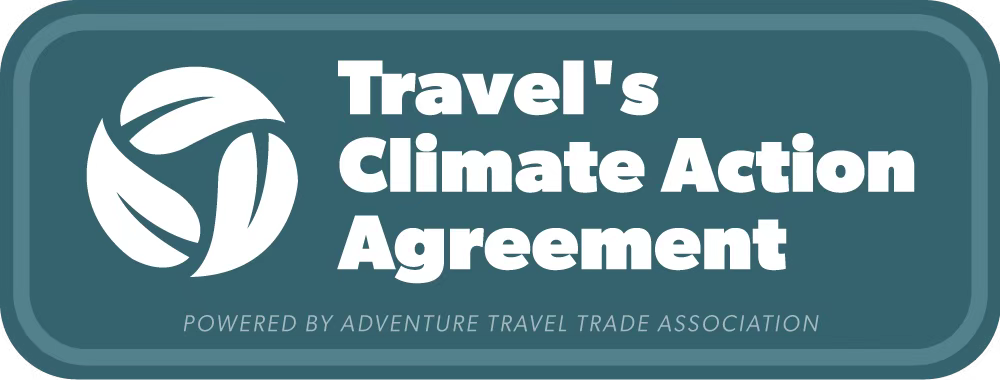
Designed by eRui
Please prove you are human by selecting the Star .
Please leave this field empty. Send
Booking/ Enquiry Form
Please fill the form bellow with the details of the trip you are interested in. We are more than to happy to assist you in planning your trip.
Please prove you are human by selecting the Heart .
Please leave this field empty.
Special Features
Vendor voice.
This article is more than 1 year old
Database containing personal info on 106m people who traveled to Thailand found open to the internet – report
Misconfigured elasticsearch server blamed.
A database containing personal information on 106 million international travelers to Thailand was exposed to the public internet this year, a Brit biz claimed this week.
Bob Diachenko, head of cybersecurity research at product-comparison website Comparitech, said the Elasticsearch data store contained visitors' full names, passport numbers, arrival dates, visa types, residency status, and more. It was indexed by search engine Censys on August 20, and spotted by Diachenko two days later. There were no credentials in the database, which is said to have held records dating back a decade.
“There are many people who would prefer their travel history and residency status not be publicized, so for them there are obvious privacy issues,” wrote Comparitech editor Paul Bischoff on the company’s blog.
Diachenko said he alerted the operator of the database, which led to the Thai authorities finding out about it, who "were quick to acknowledge the incident and swiftly secured the data," Comparitech reported. We're told that the IP address of the exposed database, hidden from sight a day after Diachenko raised the alarm, is still live, though connecting to it reports that the box is now a honeypot.
It's claimed the Thai authorities said the data was not illegally accessed by anyone. That said, the leak includes a whole lot of people given Thailand’s popularity as a tourist destination prior to the COVID-19 pandemic.

Thailand bans joke cryptocurrencies and non-fungible tokens
According to data from The World Bank , Thailand racked up almost 40 million international arrivals in 2019, a number that was on the rise every year pre-pandemic except for 2014, the year the country experienced a military coup.
“Any foreigner who travelled to Thailand in the last decade or so probably has a record in the database,” wrote Bischoff.
We've contacted the Thai embassy in the US for further comment. Diachenko told The Register a "server misconfiguration" by an IT outsourcer caused the database to be exposed to the whole world.
Thailand is largely shut to tourists, with a few exceptions like a restricted Phuket experience serving as a pilot reopening program. The country, whose economy relies on a hefty influx of travelers, plans to welcome vaccinated visitor to five more destinations in October that are Bangkok, Phetchaburi, Prachuap Khiri Khan, Chonburi and Chiang Mai. More provinces are expected to follow.
As for the leak, Comparitech said none of the information exposed poses a direct financial threat to the majority of those listed as no bank details or contact information was included, for instance.
Additionally, it’s possible that if you've traveled to Thailand and stayed there during the pandemic, you’ve already been leaked. A government website used to sign foreigners up for COVID-19 vaccines spilled names and passport numbers in June.
Additionally, last month, Bangkok Airways was hit by ransomware group LockBit resulting in the publishing of passenger data. And in 2018, TrueMove H, the biggest 4G mobile operator in Thailand, suffered a database breach of around 46,000 records.
Comparitech said the database it found contained several assets, in addition to the 106 million records, making the total leaked information come to around 200 GB. ®
- Data Breach
Narrower topics
Broader topics.
Send us news
Other stories you might like
Cybercriminals threaten to leak all 5 million records from stolen database of high-risk individuals, global taxi software vendor exposes details of nearly 300k across uk and ireland, valkey publishes release candidate and attracts new backer, reducing the cloud security overhead.
185K people's sensitive data in the pits after ransomware raid on Cherry Health
North american s/4hana migrations ramping among sap users, us house approves fisa renewal – warrantless surveillance and all, sharepoint logs are easily circumvented and microsoft is dragging its heels, puppies, kittens, data at risk after 'cyber incident' at veterinary giant, linux foundation marshals support for open source alternative to redis, pandabuy confirms crooks nabbed data on 1.3m punters, ransomware gang did steal residents' confidential data, uk city council admits.
- Advertise with us
Our Websites
- The Next Platform
- Blocks and Files
Your Privacy
- Cookies Policy
- Privacy Policy
- Ts & Cs

Copyright. All rights reserved © 1998–2024
Details Of Millions Who Visited Thailand In Last 10 Years Leaked Online: Report
The Southeast Asian nation is a popular tourist destination, drawing nearly 40 million visitors in 2019 before the pandemic shuttered borders and seized up global travel.

Thailand's Cyber Crime Investigation Bureau said it was unaware of the incident (Representational)
More than 106 million travellers to Thailand had their personal details exposed online in August, a cybersecurity research company that discovered the data said Monday, but the leak was quickly plugged by authorities.
Britain-based consumer security company Comparitech said in a report that its head of cybersecurity research Bob Diachenko found a database in August containing the personal information of travellers to the kingdom.
He said "any foreigner who travelled to Thailand in the last decade might have had their information exposed in the incident", including their name, passport number and residency status.
Comparitech said Diachenko also found his own name and details about his entries into Thailand on the database, which contained information dating back to 2011.
Thai authorities were informed on August 22 and secured the data the following day.
"However we do not know how long the data was exposed prior to being indexed," said the report.
Thai authorities "maintain the data was not accessed by any unauthorised parties", it added.
Thailand's Cyber Crime Investigation Bureau said it was unaware of the incident but was looking into it.
While Thais are largely internet-savvy, their government is no stranger to data leaks and information breaches.
Promoted Listen to the latest songs, only on JioSaavn.com
In June a government website for foreigners to sign up for a coronavirus vaccine was found to be revealing the names and passport numbers of prospective recipients. The site was taken down soon after.
(Except for the headline, this story has not been edited by NDTV staff and is published from a syndicated feed.)
Track Budget 2023 and get Latest News Live on NDTV.com.
Track Latest News Live on NDTV.com and get news updates from India and around the world .
India Elections | Read Latest News on Lok Sabha Elections 2024 Live on NDTV.com . Get Election Schedule , information on candidates, in-depth ground reports and more - #ElectionsWithNDTV
Watch Live News:

TheJakartaPost
Please Update your browser
Your browser is out of date, and may not be compatible with our website. A list of the most popular web browsers can be found below. Just click on the icons to get to the download page.
- Destinations
- Jakpost Guide to
- Newsletter New
- Mobile Apps
- Tenggara Strategics
- B/NDL Studios
- Archipelago
- Election 2024
- Regulations
- Asia & Pacific
- Middle East & Africa
- Entertainment
- Arts & Culture
- Environment
- Work it Right
- Quick Dispatch
- Longform Biz
Details of 100m visitors to Thailand exposed online: research firm
More than 106 million travellers to Thailand had their personal details exposed online in August, a cybersecurity research company that discovered the data said.
Share This Article
Change size.
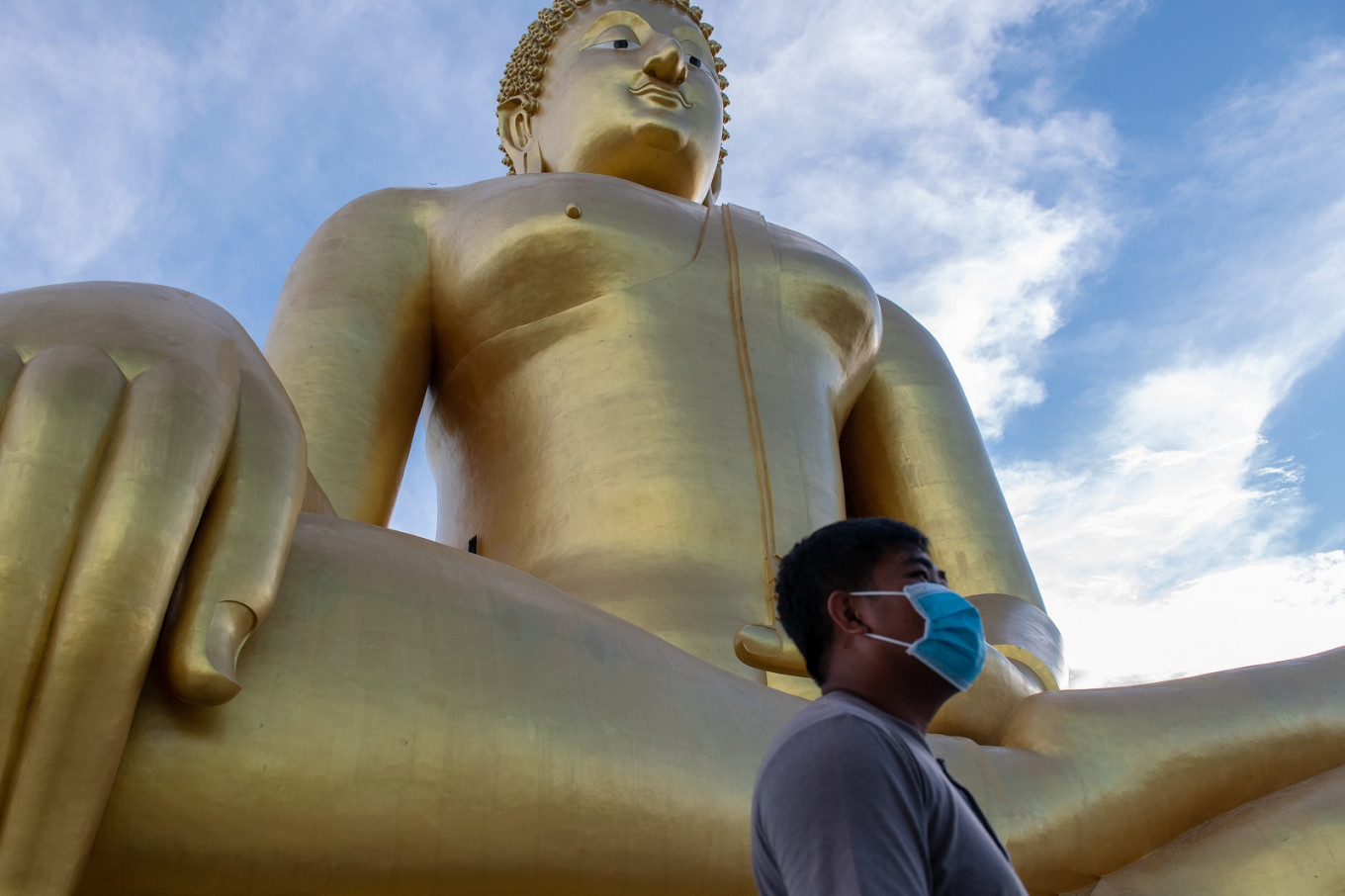
ore than 106 million travellers to Thailand had their personal details exposed online in August, a cybersecurity research company that discovered the data said Monday, but the leak was quickly plugged by authorities.
The Southeast Asian nation is a popular tourist destination, drawing nearly 40 million visitors in 2019 before the pandemic shuttered borders and seized up global travel.
Britain-based consumer security company Comparitech said in a report that its head of cybersecurity research Bob Diachenko found a database in August containing the personal information of travellers to the kingdom.
He said "any foreigner who travelled to Thailand in the last decade might have had their information exposed in the incident", including their name, passport number and residency status.
Comparitech said Diachenko also found his own name and details about his entries into Thailand on the database, which contained information dating back to 2011.
Thai authorities were informed on August 22 and secured the data the following day.
"However we do not know how long the data was exposed prior to being indexed," said the report.
Thai authorities "maintain the data was not accessed by any unauthorised parties", it added.
Thailand's Cyber Crime Investigation Bureau said it was unaware of the incident but was looking into it.
While Thais are largely internet-savvy, their government is no stranger to data leaks and information breaches.
In June a government website for foreigners to sign up for a coronavirus vaccine was found to be revealing the names and passport numbers of prospective recipients. The site was taken down soon after.
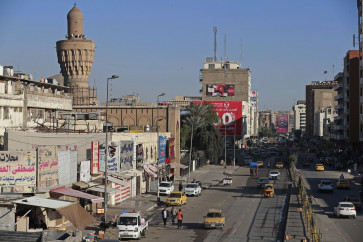
'Bombing' hits Iraq military base: security sources
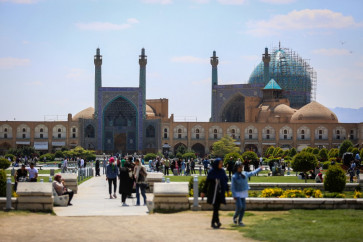
Calls for calm after reported Israeli strike on Iran

Pro-Prabowo parties jockey over cabinet makeup
Related articles, innovation: the most important yet the most ignored facet of indonesia’s energy transition, improving the traceability of ri sustainable palm oil to meet eudr, ai revolution: what’s next for indonesian businesses in 2024, navigating ai’s impact on indonesia's elections, managing cybersecurity should be a top priority for 2024, says pwc, related article, more in life.
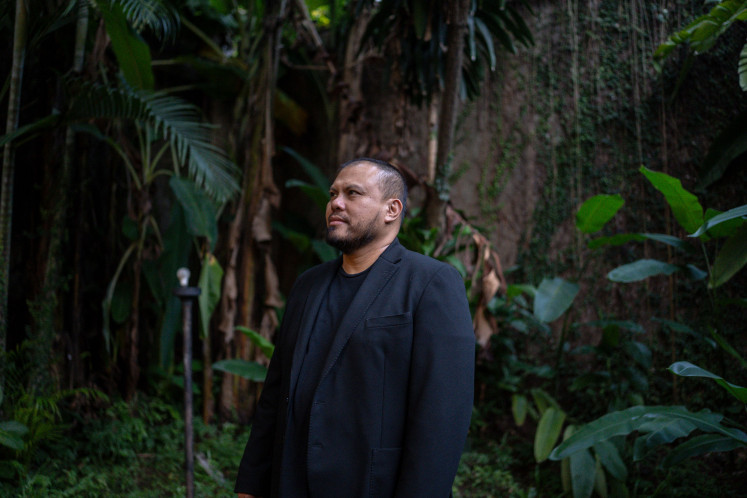
Joko Anwar's Leap of Faith

Local horror film industry thrills, scandalizes with recent releases
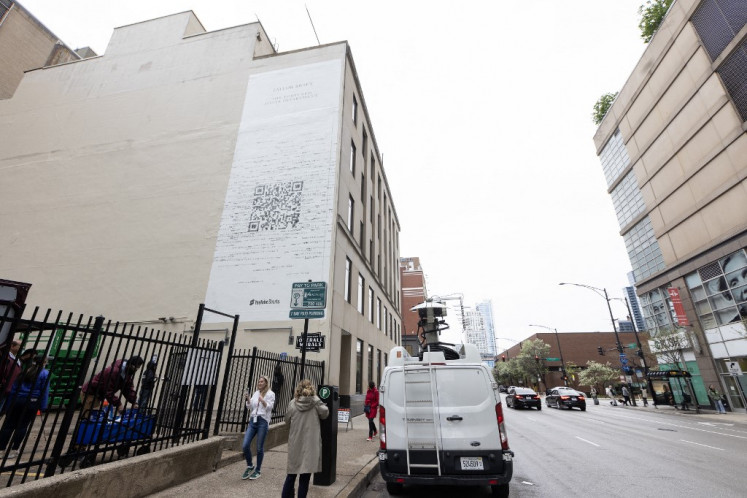
Taylor Swift's 'The Tortured Poets Department' drops Friday
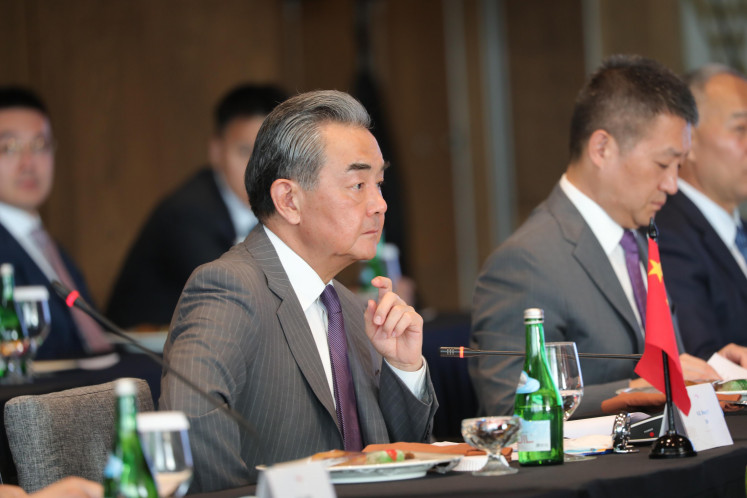
China says AUKUS risks nuclear proliferation in Pacific

Enlighteningly frightening

Road to Paris 2024: Indonesian contingent starts revving up
Tesla cuts prices nearly $2,000 in china, in line with us cuts, corpse flower blooms in west java botanical garden, uaw wins big in historic union vote at volkswagen tennessee factory, who likely to issue wider alert on contaminated j&j cough syrup.
- Jakpost Guide To
- Art & Culture
- Today's Paper
- Southeast Asia
- Cyber Media Guidelines
- Paper Subscription
- Privacy Policy
- Discussion Guideline
- Term of Use
© 2016 - 2024 PT. Bina Media Tenggara
Your Opinion Matters
Share your experiences, suggestions, and any issues you've encountered on The Jakarta Post. We're here to listen.
Thank you for sharing your thoughts. We appreciate your feedback.
- Hua Hin News
- Thailand News
- Spa, Health & Wellness
- Food & Entertainment
- Property News
- Sign in / Join

Peerada Piddon claims first pro victory at Singha-SAT Hua Hin Ladies…

His Majesty the King attends sailing competition in Cha-am

Drought forces Hua Hin to reduce water supply during peak hours

PHOTOS: Here’s where to see thousands of butterflies near Hua Hin

Amazing Cha-Am – Hua Hin Consumer Fair to be held in…

Here’s when Immigration in Hua Hin and Cha-am will be closed…

Over 700 foreigners prosecuted for occupying jobs reserved for Thais

Navigating the Future: Why Digital Accounting Systems Matter Now More Than…

Did you see the meteor in the sky over Hua Hin…

PM announces plans for a mid-sea airport in Hua Hin

Sheraton Hua Hin Resort & Spa hosts 21st Bangkok Chess Club…

Young athletes from Prachuap Khiri Khan triumph at National Jujitsu Championships

Hua Hin hosts thrilling Thai Jet Ski Championship
- News from Thailand
Details of 106 million tourists to Thailand leaked online in data breach

The personal details of 106 million foreign tourists to Thailand have been leaked online, cyber security experts have discovered.
The data was leaked in August, according to a report released on Monday (Sept 20) by British based cyber security firm Comparitech .
The company said it discovered a database containing the personal information of “any foreigner who travelled to Thailand in the last decade might have had their information exposed in the incident”.
Comparitech’s head of cybersecurity research, Bob Diachenko said he was even able to find his own personal data in the leak, having previously visited Thailand on holiday.
According to Diachenko the data goes back to 2011 and includes names, passport numbers and visa status.
The data leak was discovered on August 21 with the Thai authorities securing the data on August 22. They maintain “the data was not accessed by any unauthorised parties”.
“However we do not know how long the data was exposed prior to being indexed,” the report said.
Pre-pandemic approximately 40 million tourists visited Thailand annually.
This isn’t the first time a major data leak has been discovered in Thailand.
As recently as June this year , the website set up by the government to enable foreigners in Thailand to register to receive a COVID-19 vaccination was found to be exposing the names and passport details from people who registered on the site.
RELATED ARTICLES MORE FROM AUTHOR
Here’s when immigration in hua hin and cha-am will be closed over songkran, navigating the future: why digital accounting systems matter now more than eve, leave a reply.
Log in to leave a comment
- Advertisement
- Business List
Subscribe to our weekly newsletter

Peerada Piddon claims first pro victory at Singha-SAT Hua Hin Ladies...


Data leak in Thailand of 106 million tourists/travelers reported — names, passport numbers, visas etc

This time, it was the private data of 106 million tourists/travelers to Thailand, whose personal information was discovered online after it was indexed by search engine Censys on Aug 20th.
The data leak was reported to Thai authorities by a ‘white hacker’, and the information leak was plugged soon after.
Unfortunately for the 106 million people who had traveled to Thailand since 2011, however, the information that was exposed included the person’s full name, sex, passport number, visa type, arrival data and residency status.
There was no mention of their birthdate also being leaked but, if it was, that makes the leak even more serious.
One good piece of news concerning the latest data leak in Thailand, however, is that the Thai National Cybersecurity Agency (NCSA) confirmed the leak had occurred, but also said they had not been able to detect any of the information being put up for sale online.
At least yet.
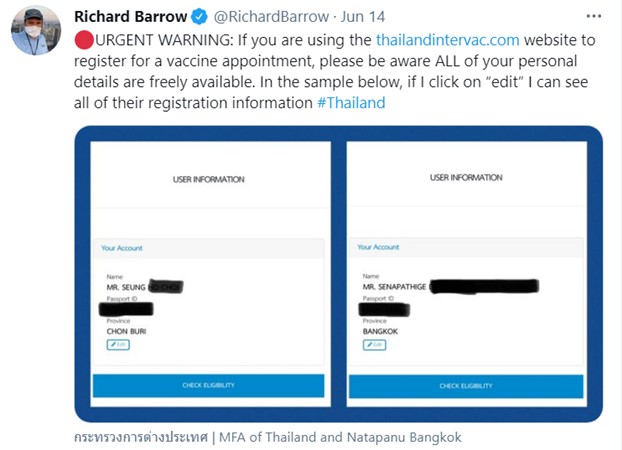
The latest data leak in Thailand comes just three months after Thailand-based blogger Richard Barrow exposed more data being exposed on a government site set up for foreigners to register for the Covid-19 vaccine ( see his tweet above ).
In past years, leaks on Thai government websites have also exposed the data of more than 2,000 foreigners living in southern Thailand, while another data leak exposed foreigner’ names, nationalities, passport numbers, flight numbers, addresses in Thailand and even their most recent vaccine shots.
Now, with the latest data leak in Thailand that we know about, 106 million people’s information appeared online without Thai authorities being aware the leak had occurred.
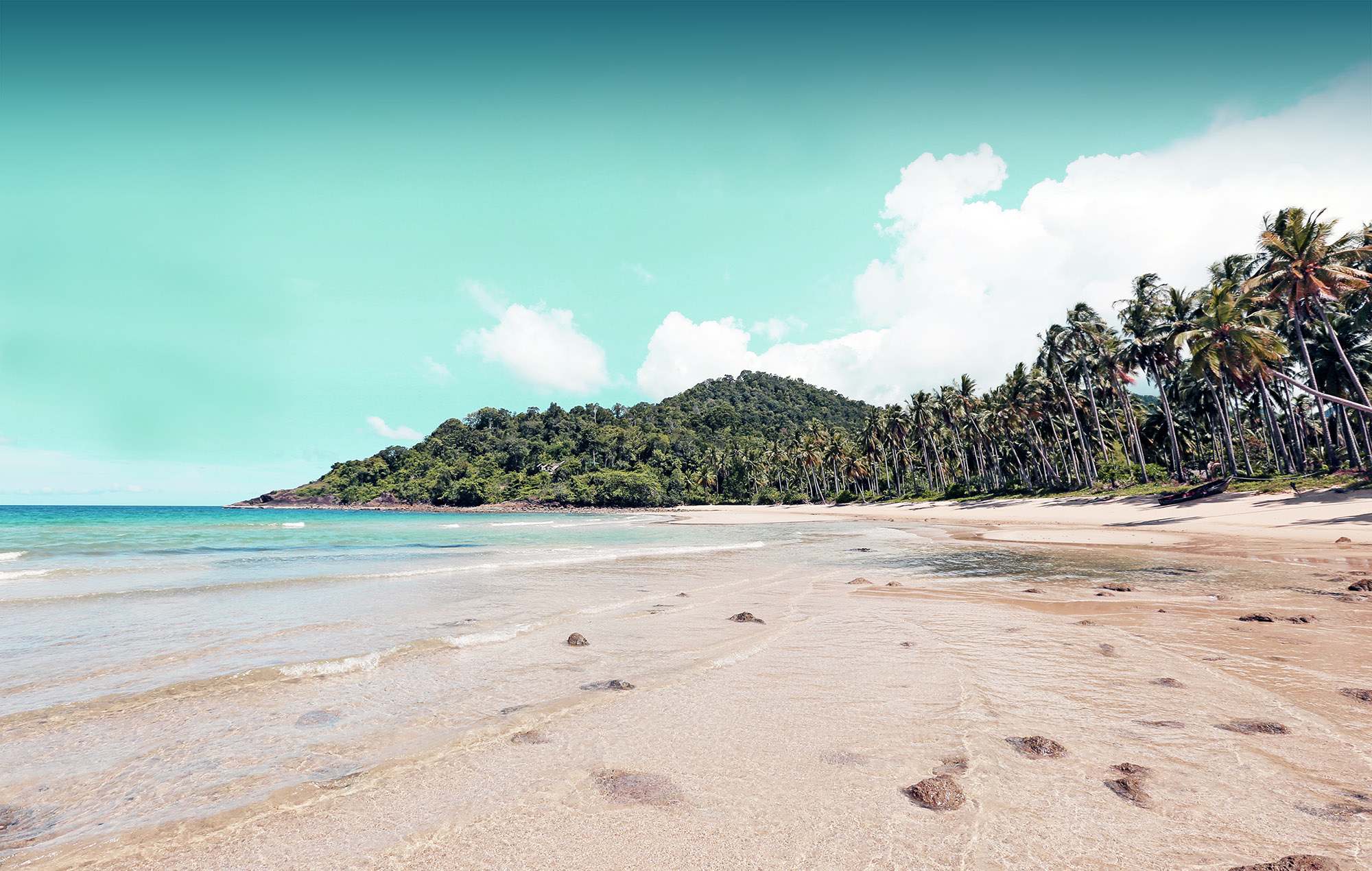
Tourism Leakage – this is how little your money contributes locally!
Where does your money spent on traveling go.
First time I opened my Tourism Management course book back in my university days, one chart especially stood out to me. This was the “Tourism Leakage” chart, which showed the average distribution of the money spent on a holiday. When you analyse the individual elements of the chart, there are no big surprises. But the visual overview communicates a clear message: The tourism destination itself receives a surprisingly small portion of the economic benefits from your total holiday expenditure.
The chart looks something like this:
Let’s walk through the elements of this tourism leakage chart.
Blue section: A lot of the travel expenses you have before the actual trip such as airfare, insurances, and travel agency profits will benefit international and outbound companies not directly related to the country of your travel destination.
Rose-colored section: Within the country you are visiting, there are expenses such as visa fees, inbound travel agencies, and transportation providers. These might benefit the national economy, but not have any direct positive effect on your holiday destination. They might also be international companies partly with international staff, in which case more leakage occurs on a national level.
Green section: Among your expenses at the destination is the proportion of the accommodation cost that stays with the hotel, the money you spend inside hotel, and at the destination such as shopping, eating, activities, rental, transportation, and guided tours. If you book these products and services directly from the supplier, and if the suppliers are local, chances are that more economic value will stay locally. Especially in low resource communities or destinations with large gaps between rich and poor, your money are more likely to benefit a small local elite or foreign companies because these are usually the only ones who can provide tourism products that live up to international standards. A hotel belonging to an international hotel chain will send profits back to company headquarters and they will be more likely to employ internationally trained and non-local staff. If you buy and consume imported products and brands the import cost obviously leaks out of the local economy also.
Dark section: Needless to say, the size of the tourism leakage depends on the individual case and there are a lot of variables and exceptions. But there has been done research on the area. According to the UNEP (United Nations Environment Programme), for every 100 $ spent by a tourist on a holiday to a developing country, only 5$ remain in the host community. That’s a tourism leakage of 95%. Another report quoted on the same web page says that…
“70% of all money spent by tourists ended up leaving Thailand (via foreign-owned tour operators, airlines, hotels, imported drinks and food, etc.)”
One can only wonder then, how much of the remaining 30% will then stay in the host community?
Why is tourism leakage a problem?
If you made it this far, you might have quietly wondered in the back of your mind, “But is leakage so bad”? “Isn’t it just the same as other consumer products that involve a large number of stakeholders, agents, producers, buyers, whole-sellers, workers, and a mixture of raw materials from near and far?”
Good questions. I was myself wondering just the same when I analyzed the chart. Tourism has the beautiful potential to create local jobs, create cultural pride, share local knowledge and customs, give unique experiences to visitors, and to contribute economically to small local businesses and host families. How many of these benefits will materialize if you stay at an international hotel with foreign staff and management, drink Coke and Heineken, eat McDonalds, and stay at private beaches not welcoming local residents? Not much.
And why is this important? Because it is usually the host community that has to deal with all the nuisances and potential problems related to tourism. These could be…
- Price inflation – everyday goods and services become more expensive caused by tourism development, but local salaries might not increase proportionally.
- Water shortage – tourists use a significantly more water than local residents. This can be a big problem in areas of freshwater shortage. For example swimming pools, bath tubs, air-conditioning, frequent washing of bed sheets and towels, irrigation of gardens, and activities such as golf require great amounts of water.
- Waste management – tourists use and require a lot of single-use products such as shampoos and lotions, slippers, chemicals from daily cleaning of rooms and common hotel areas, batteries etc. At the same time high seasons can attract a great number of tourists to a relative small area creating more waste along with increased pressure on the infrastructure.
- Space issues – your favourite beach could be full of tourists or even worse, it could be privatized, so only the paying tourists get the best beach spots.
- Cultural issues – in a tourism destination where local customs, tastes, and socio-cultural and political sensitivities take a backseat to a hedonistic and bulldozing “tourist culture”, tourists are likely to cause annoyance, worry, and even contempt among local residents. Interestingly, but perhaps not surprisingly, tourists sometimes behave worse on holiday, as they also take a vacation from their normal responsibilities and restrictions from back home.
- Noise issues – tourists don’t have to work the next day, so every night is a new opportunity for a party.
What can you do to make your money benefit the society in which you are traveling?
To make sure your holiday expenses benefit the destination and the communities you are visiting, we want to make a list of things you can do. Remember to follow Beachmeter.com, so you don’t miss this list. If you have any suggestions to add to the list, please feel free to contact us.
Interested in reading more about tourism leakage?
Here are some links for further reading to those interested: Problems in Paradise – article by Chris Brazier co-editor of New Internationalist . This article touches not only upon tourism leakage, but also a number of the challenges and problems with tourism development in general.
Share with family, friends, and the world:


Related Articles

Exploring the BEST Diving Spots in Thailand

9 Ways Travel Will Change After The Covid-19 Pandemic
23 comments leave a comment.
[…] On top of that, there is the problem of what tourism researchers call “leakage”. For an in-depth exploration of tourism leakage, see our post “Tourism Leakage – This is how little your money contributes locally!” […]
Very informative and interesting article about tourism leakage. I’ll have a look at the related links. Thanks Ellen
[…] We investigate tourism leakage and see how little of your holiday expenses actually remain to benefit the local communities of your travel destinations. […]
[…] are much more environmentally and socially sustainable than their bigger counterparts. For example, “leakage” is not a big issue in small family-owned hotels. Compared to big hotels and hotel groups, small accommodation providers are more likely […]
[…] will minimize tourism leakage by supporting the local community directly. You will interact with your local host or seller, and […]
One of the topics, which I try to explain to my students. They only see the total numbers, which get published everywhere. Tourism is a billion dollar industry and who actually benefits. In Thailand only 15% of the total income stays in the country… simply not enough, when we go down the list from above… waste, water shortage, accessibility to beaches for locals, wages, etc. The list could go on forever. Truly an eye-opener…
Yes, I agree. I also had “wow!”-moment when the tourism leakage issue was first introduced to me. What it tells me is that the majority of tourists basically don’t travel to get challenged and inspired by new ways of doing things. It’s rather a question of convenience and comfort where food, service, culture etc. should not be too different from what they are used to, which results in the import of foreign staff, products, food, and services.
[…] Most of the money spent for travel doesn’t stay in the local economy–it goes to airlines and hotel and restaurant chains owned by people outside of the community. […]
[…] from having me there? These questions really struck me after our Hawaii visit. I found this great graphic about tourism leakage, showing only about 10% of your holiday money actually gets in to […]
May i know when was this published? and who’s the author of this article?
Hi Bettina. Please check your personal inbox. Have a joyful day.
could you message me the date, and author, and qualifications of this article?
please share with me also as i would love to acknowledge you on my research about tourism leakages.
P.S Medoh from Botswana,southren African
Hi Medoh. You’ll receive an email shortly 😉
same here please share with me too. This is one of the best article i read out.
This is a very powerful and informative stuff about tourism leakage.
Hi! I would love to know the author of this article aswell and the date is was published. This is very informative article, thank you!
Hi Sini and thanks for your interest. You will receive an email with the details of the article.
thank you Study in malaysia
[…] read this article on tourism leakage (not to be confused with Montezuma’s revenge) if you don’t believe […]
[…] We get it, travel is part of a lifestyle now. It is no longer a luxury, but rather a necessity to live your best life, and of course, to be able to geotag your photos on Instagram (Admit it. Our team here is guilty of it too). However, with travel there can be a large margin of tourism leakage where less than 10% of your hard earned money actually goes back to the local community. […]
[…] evenly-spread economic boost without the devastating cultural and environmental impacts and leakage of Big […]
[…] hotel chains. Most of the profits made by these get siphoned out of the country, which is called economic leakage in […]
[…] you know that for every $100 spent by tourists in developing countries, the local economy only sees about $5? It’s time to change […]
[…] your tourist dollar to causes you support- whatever choice that might be. You can also read up on tourism leakage and why it is important to keep your tourist dollar within the local […]
[…] Leakage rates range from around 40% in India to 80% in Mauritius according to 2011 research published by the German development agency GIZ. In Thailand, the world’s ninth largest tourist destination, an estimated 70% of money leaves the country through foreign-owned tour operators, airlines, hotels, imported drinks and food. […]
As you clearly indicate in your article, there is a large issue to resolve which provides the basis for any social and ecological sustainability in any destination.
ECONOMICAL sustainability.
Unfortunately, this is not a given and especially in developing countries causes issues as you correctly described in your article.
Today, Hospitality and Tourism providers are giving away 60% to 80% of their profits & the customer ownership and data to no longer sustainable traditional value chains (i.e. collapse of Thomas Cook) or to market-dominating digital value chains (i.e. booking.com). This is not sustainable and needs to be fixed to really start going about ecological and social sustainability tourism development.
As a social enterprise, we focus on this with our public-private partnership & freemium business model.
We democratize technology and make it inclusively available for all the emerging, small, medium and independent hospitality and tourism businesses in a destination.
We keep more tourism spend in the destination and gain back control of their visibility, digital presence, reputation, communication, and distribution.
Hello I cannot find the report from the UN that you cite. Do you have the link and could you please share it with me? Thank you!!
Hi Elena. The cited article appears to have been removed by the UN. So far, we haven’t been able to locate it. This page from Oceansatlas seems to use the same study though.
hi! I am doing a research on tourism impacts of Thailand’s economy. Would you be able to send me the author’s name and the date is was published? Thank you so much!!
No problem. Will send you an email with the information ☀️
[…] Tourism leakage is when revenue is lost from tourism to other countries’ economies. It means the attempt to calculate the percentage of expenses contribute to the local economy of the destination you are visit and what percentage leak to other outside economies. For example, your transportation, accommodation, food and tour costs all go toward your vacation budget. Tourism leakage breaks down those numbers and shows just exactly who is really benefiting from your spending. […]
[…] Uzbekistan.The dominance in tourism of large chains, resorts, and theme parks is a major source of tourism leakage, which is the phenomenon in which traveler spending ends up “leaking” out of the country they […]
[…] The phenomenon of tourism dollars ending up outside the destination country due to foreign ownership is called “tourism leakage.” […]
I would also love to know the author of this article and the date it was published. I hope I am not late to subscribe you thanks a lot.. This is really great.
[…] chart by beachmeter.com shows a breakdown of how tourism dollars are often […]
[…] quando falamos de troca, falamos de conversão, mudança, transformação. Segundo este artigo*, também apresentado pelo Janelas Abertas, estudos mostram que a cada 100 USD gastos por um […]
[…] On my next trans-Africa trip, I want to take up the dozens of offers from locals that we are all too quick to decline for our pre-booked ‘safari’. In doing so I hope to form a deeper collaboration with the local guides rather than being a one-off customer to a large multinational tour company. I want to choose where my money goes rather than leave only 10% left for the local communities. […]
I would also love to know the author of this article
Author: Peter Berg Schmidt Publishing date: April 14, 2015
[…] locals miss out on the chance to enjoy benefits-they leak out of the local economy a term known as leakage. The environmental impacts of tourism on local communities include noise and air pollution, […]
I’d like to cite this article for an essay on global tourism. What’s the name of the author and publication date?
[…] 2014: Bali’s Water Crisis. University of Notre Dame, science.nd.edu.pl [dostęp 16.12.2021]. [10] Beach Meter: Tourism Leakage – this is how little your money contributes locally! [dostęp […]
[…] Ile pieniędzy z turystyki trafia tak naprawdę do lokalnej społeczności? Pomocny artykuł i grafika do zobaczenia tutaj. […]
[…] with fewer resources are the hardest hit. The travel industry on exacerbates this as up to 90% cash spent on traveling to these countries ends up in the pockets of big business that is outside of the very […]
[…] While it may be tempting to book your stay at an All Inclusive resort, I guarantee you that most of the larger resorts and accommodations are owned by massive Western hospitality corporations and your dollars aren’t circulating into the local economy like you think it is and instead goes back to mostly American, sometimes European conglomerates; a phenomenon known as Tourism Leakage. […]
Leave a Comment Cancel reply
Thailand's economy on recovery path as tourism rises
- Medium Text
- June current account surplus at $1.4 bln; exports -5.9% y/y
- Exports seen improving in late 2023 - official
- Global slowdown, delay in government formation among risks
Get a look at the day ahead in Asian and global markets with the Morning Bid Asia newsletter. Sign up here.
Reporting by Orathai Sriring, Kitiphong Thaichareon and Satawasin Staporncharnchai Editing by Peter Graff
Our Standards: The Thomson Reuters Trust Principles. New Tab , opens new tab
Russia's coal shipments to China fell 21% in March dragged down by sanctions and import tariffs, customs data showed on Saturday.
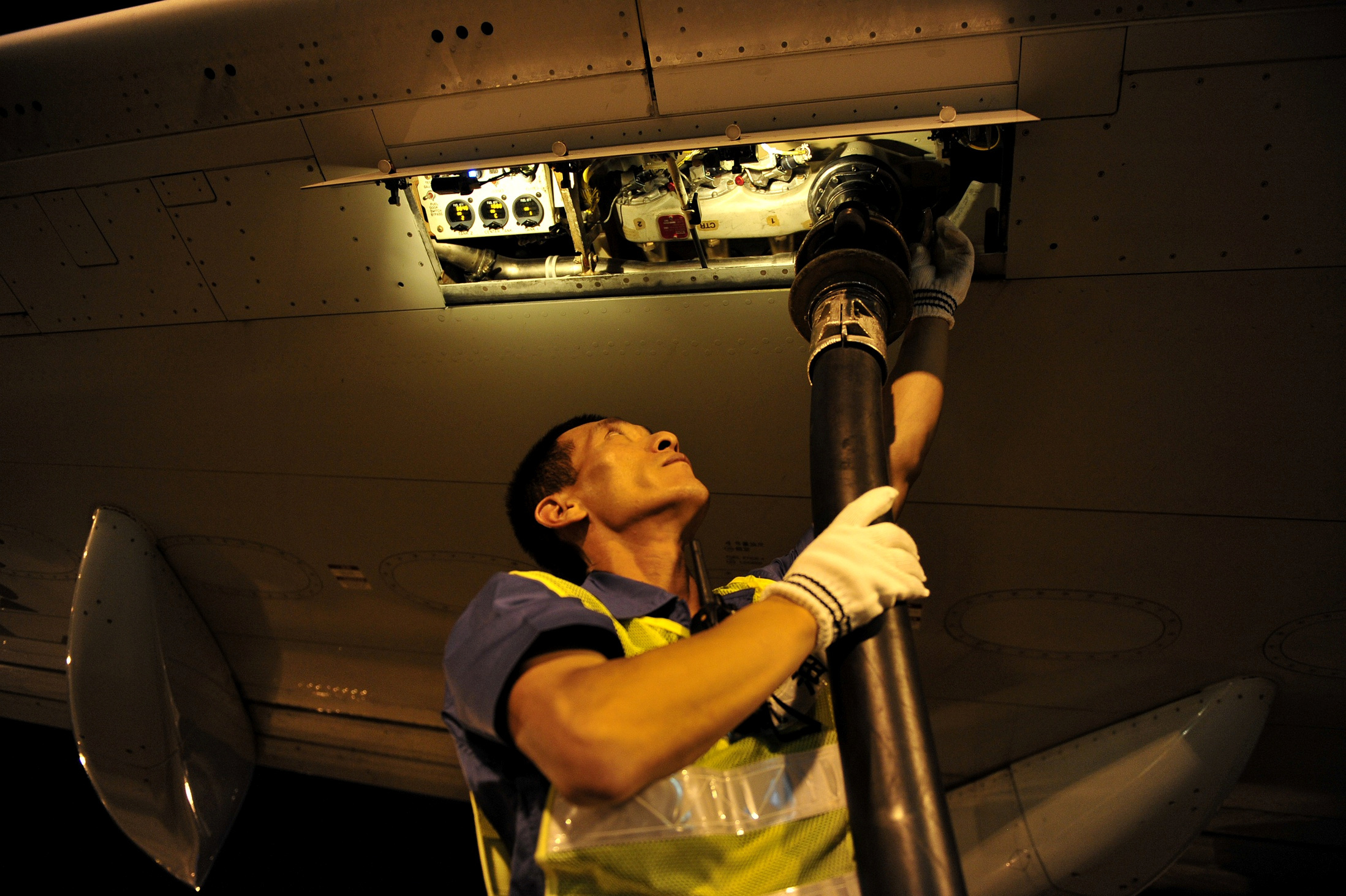
Markets Chevron
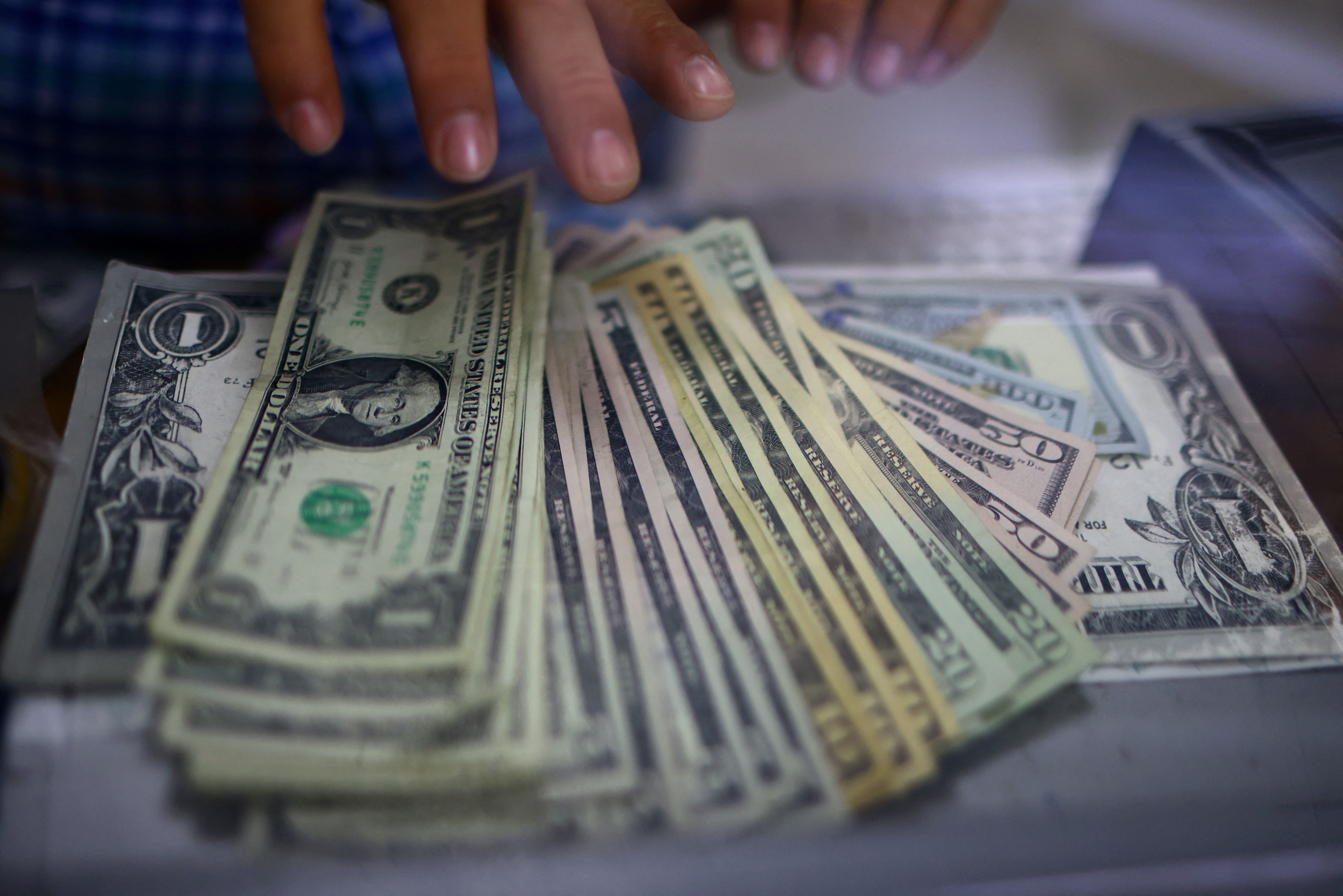
Take Five: Dancing to the dollar's beat
Just when it looked like rate cuts were coming any minute now, inflation has reared its head and the strength of the dollar is forcing other central bankers to protect their currencies and reconsider their policy choices.
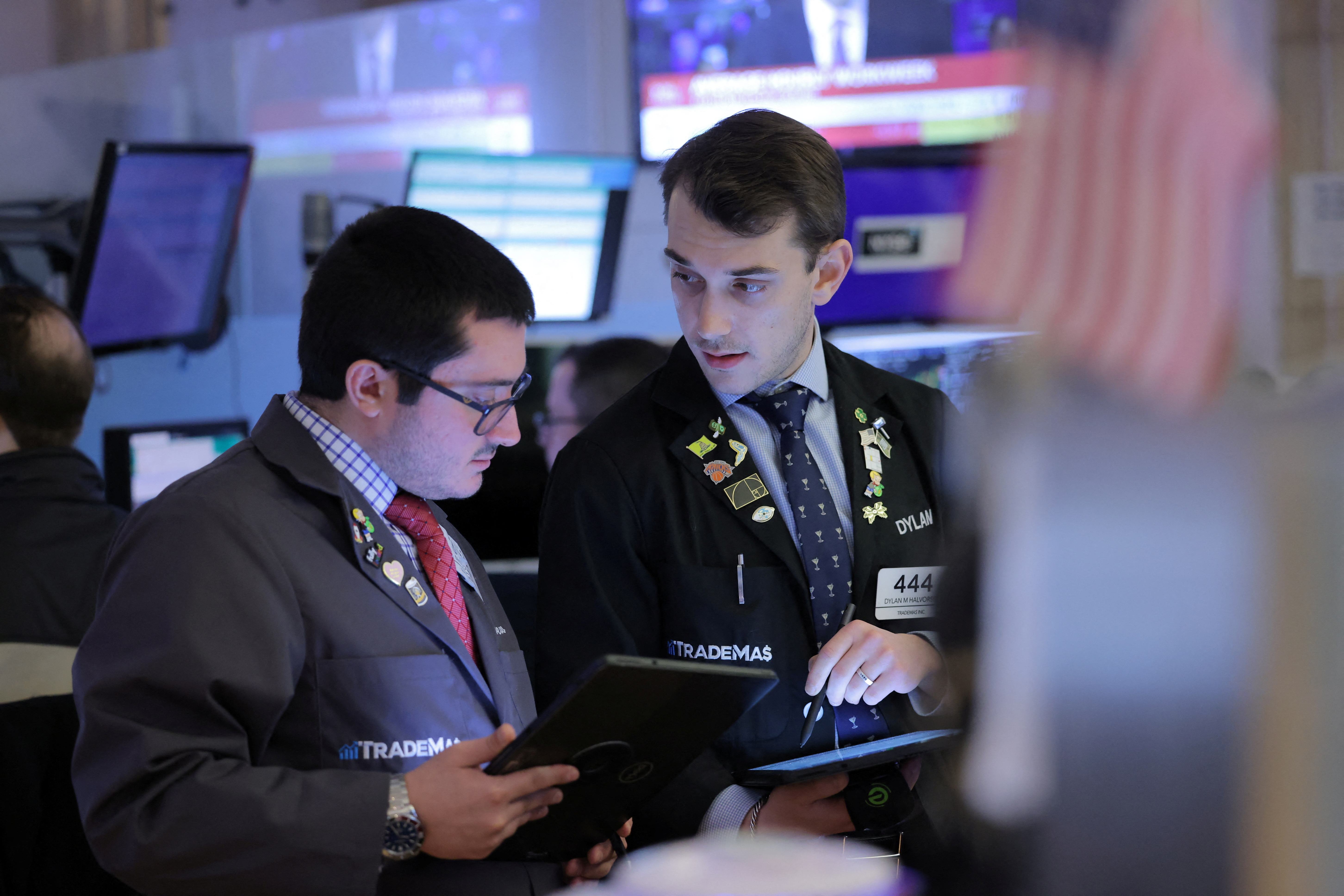
Bank of Canada Governor Tiff Macklem, who in February said the federal government should avoid a major spending increase, on Friday said this week's federal budget had not significantly altered Canada's fiscal path.
Destinations
Popular destinations, discover lapland.
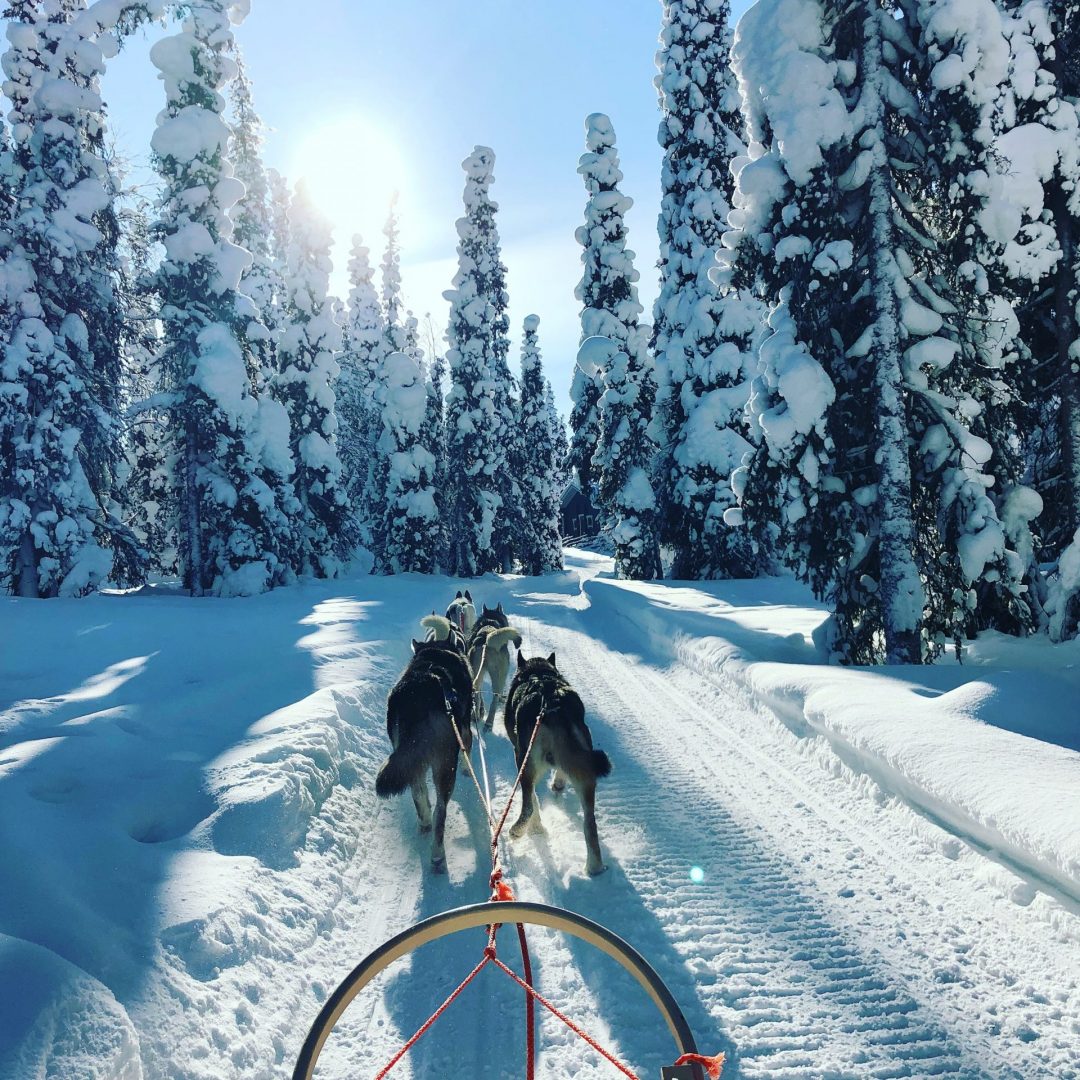
From husky rides through pristine frozen forests to excursions into the Polar night to view the Northern Lights, discover unforgettable Lapland holidays.
Take Me There
Discover Europe
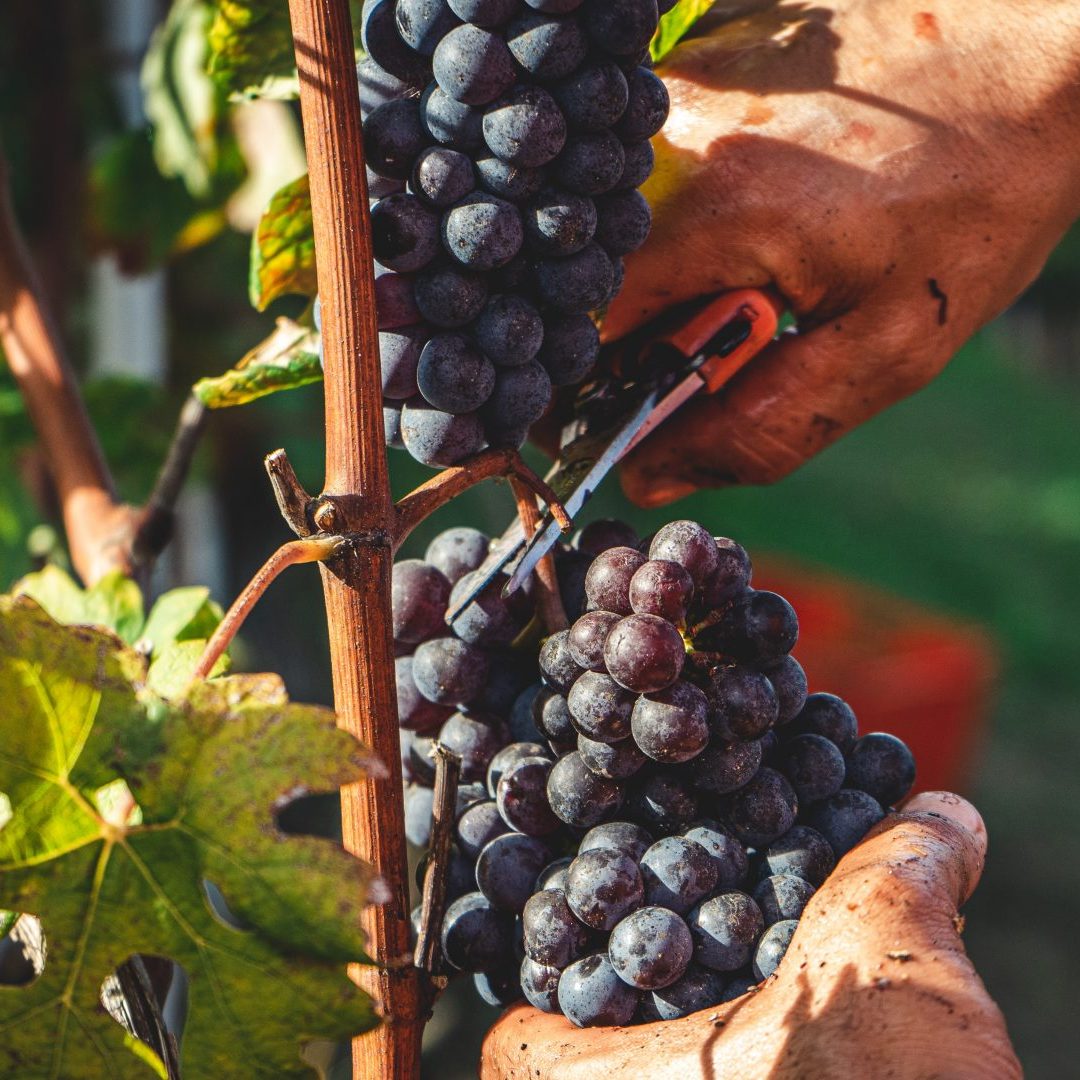
Whether it’s the bustling streets of Naples or the lush vineyards of Tuscany, prepare to be enchanted by Italy’s culture, cuisine, and magical scenery.
Central & Latin America
Discover costa rica.
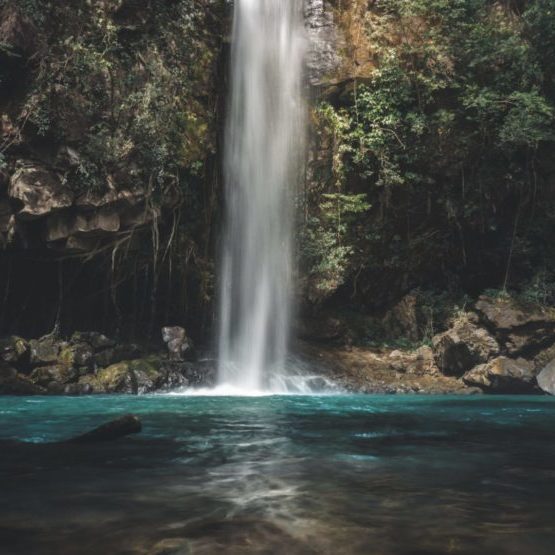
Discover volcanos, jungle, beaches, world class wildlife and the concept of Pura Vida on adventures in the tropical land of Costa Rica.
Discover Kenya
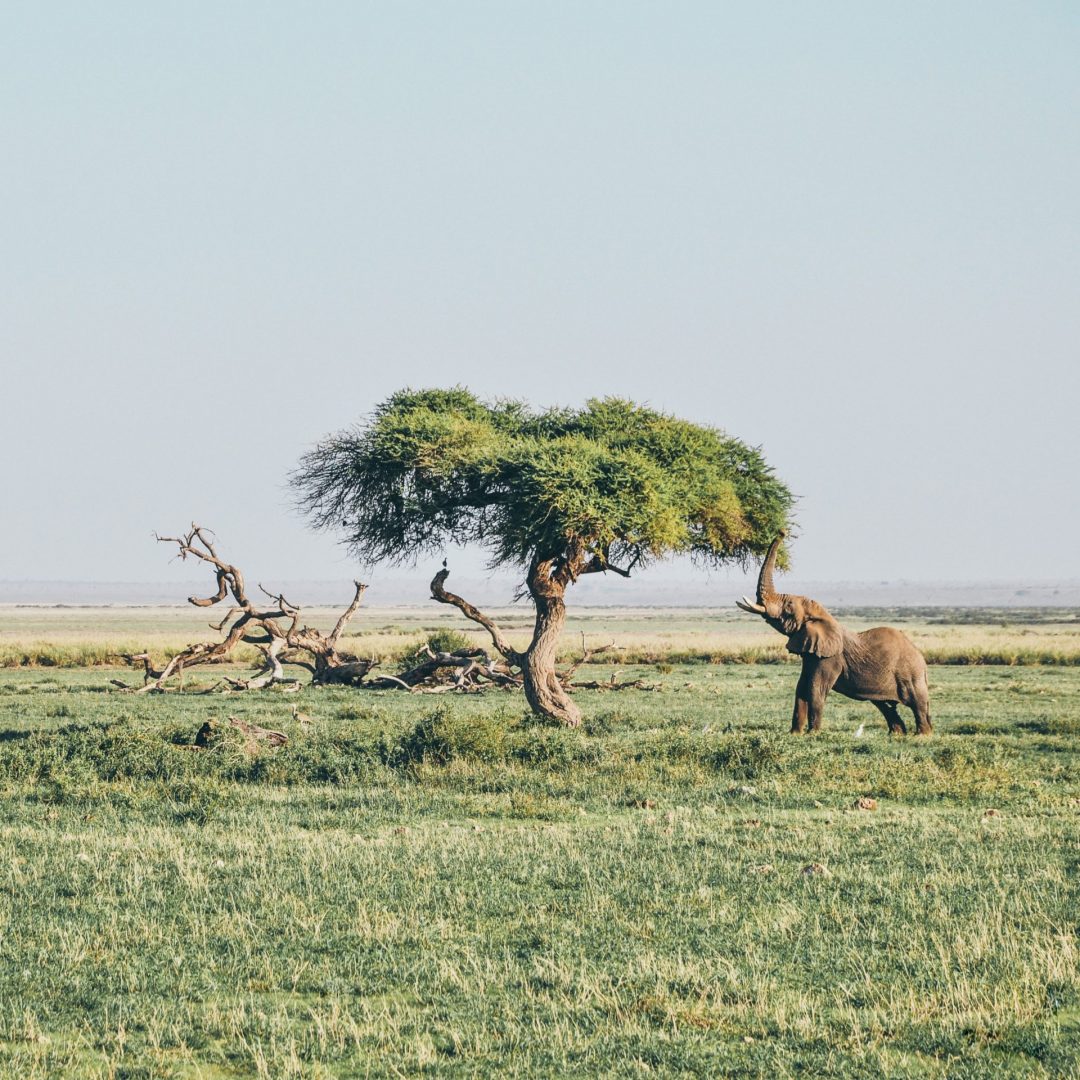
As well as one of the top destinations on earth for safari, Kenya also hosts incredible mountain ranges and beautiful Indian Ocean beaches.
Discover Cambodia
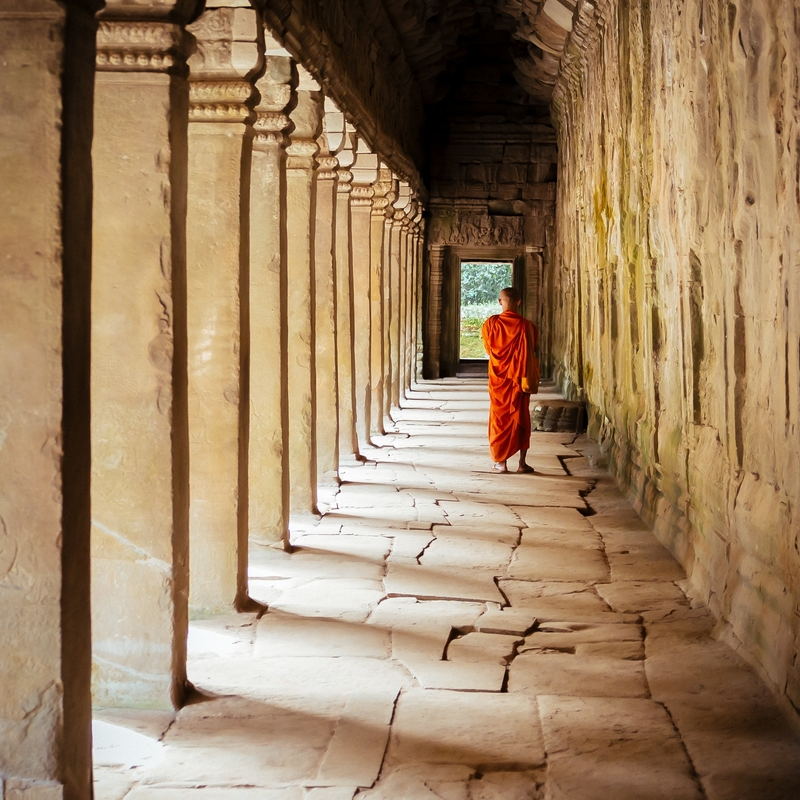
Ancient temple complexes, magical white-sand beaches and jungles dotted with cool waterfalls, Cambodia is not one to miss.
Experiences
Experience collections.
Drive Iceland's Ring Road
Island Hopping in Greece
4 Night Family Lapland Adventure
Snowshoeing Adventure in the Pyrenees
Discover The Best Of Costa Rica
Thailand Off The Beaten Track Adventure
Discover our experiences
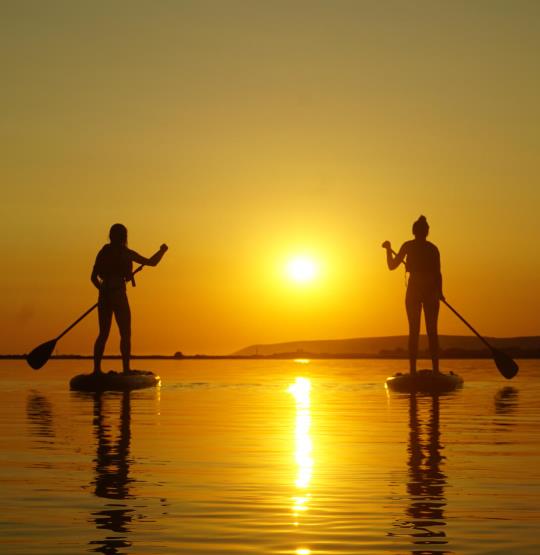
From winter sun escapes in the Maldives to bucket list adventures in Peru, explore our experience collections of local authentic experiences.
Take me there
Off the Beaten Track Holidays
Costa Rica East to West
Highlights Of Southern Peru
Experience The Real Maldives
The Best Of Uganda: Wildlife Safari
The Ultimate Cultural Morocco Tour
Bangkok To Beaches: Thailand Off The Beaten Track
Hanoi To Ho Chi Minh: Ultimate Vietnam In 14 Days
Sri Lanka: Immersive Adventure Country And Coast
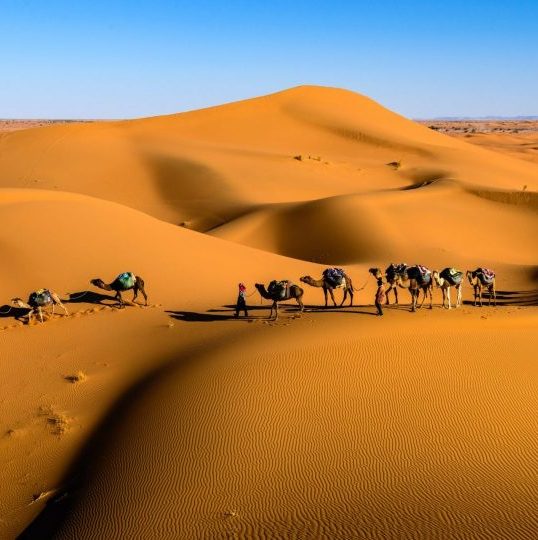
Not In The Guidebooks adventures take you to the places other tourists miss – explore our offbeat, authentic and local itineraries here.
Foodie Holidays
Cooking in Italy
Cooking in France
Cooking in Spain
Food Adventures in England
Food Adventures in France
Food Adventures in Italy
Wine in France
Wine in Italy
Wine in Spain
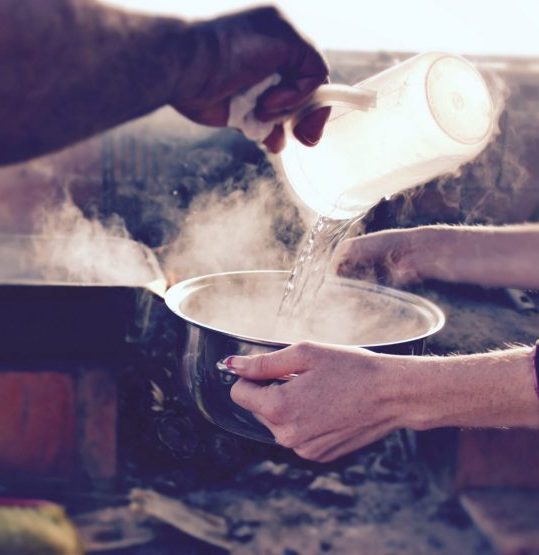
We find that the fastest route to the heart of a culture is through its cuisine. Whether that’s cooking in Italy or exploring markets in Vietnam.
Creative Holidays
Painting in France
Painting in Spain
Painting in Italy
Arts and Crafts in France
Arts and Crafts in Italy
A Creative Week in Spain
Photography in France
Photography in Italy
Photography in Spain
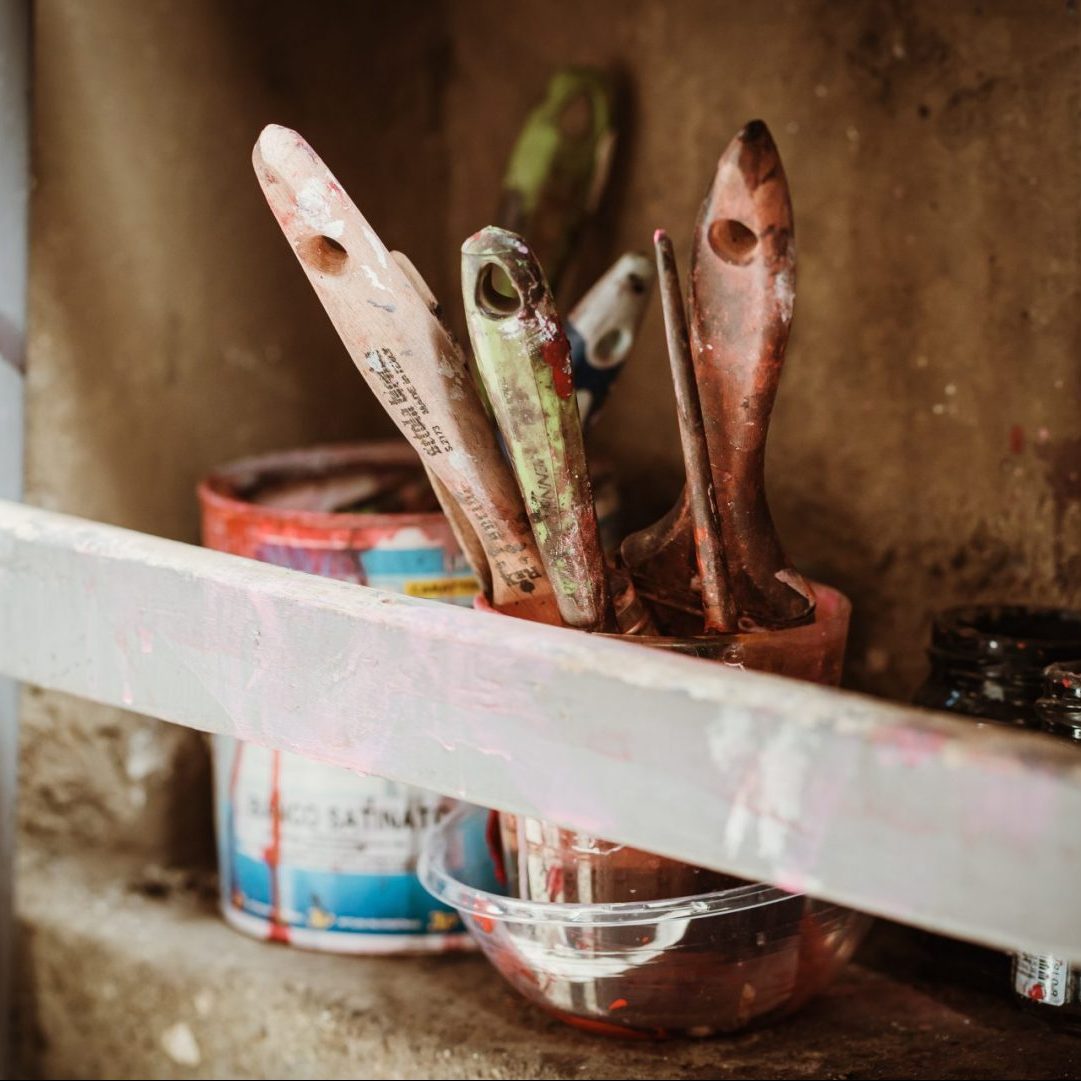
For a holiday that creates more than memories, explore our range of painting, photography, and art & crafts holidays.
Active Holidays
Walking in Ireland
Walking in Spain
Walking in Portugal
Horse Riding in Italy
Horse Riding in Morocco
Horse Riding in Spain
Surfing in Costa Rica
Surfing in England
Surfing in Portugal
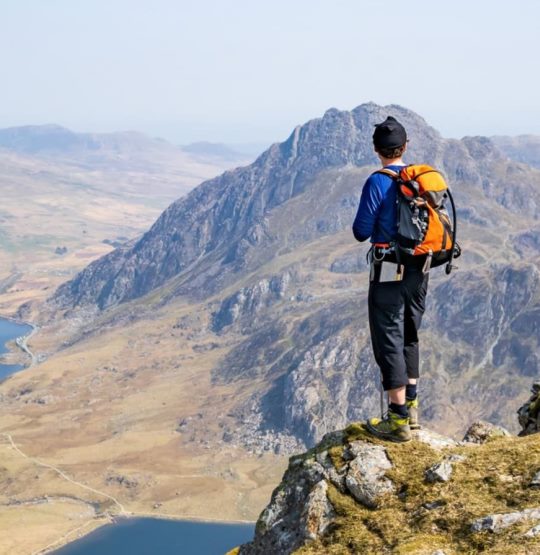
The best way to explore a landscape is to immerse yourself in it on an adventure, whether hiking the Spanish Pyrenees or kayaking in Montenegro.
Singles Activity Holidays
Cookery Holidays in France
Cookery Holidays in Italy
Cookery Holidays in Spain
Wellness Holidays in Costa Rica
Wellness Holidays in Italy
Wellness Holidays in Portugal
Creative Holidays in England
Creative Holidays in France
Creative Holidays in Spain
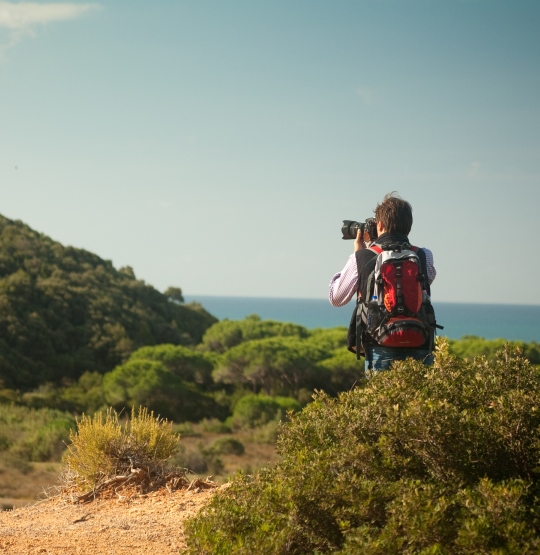
Explore the world on your terms by meeting like-minded travellers who share your passion for discovering new places and experiencing new cultures.
Wellness Holidays
Wellness Holidays in Wales
Wellness Holidays in Spain
Yoga Holidays in Costa Rica
Yoga Holidays in Italy
Yoga Holidays in Portugal

Take the opportunity to refresh, recharge and revatilise on a wellness holiday that also takes you to experience a new culture.
Wildlife Holidays
Wildlife Holidays in Costa Rica
Wildlife Holidays in Cambodia
Wildlife Holidays in Uganda
Wildlife Holidays in Kenya
Wildlife Holidays in Namibia
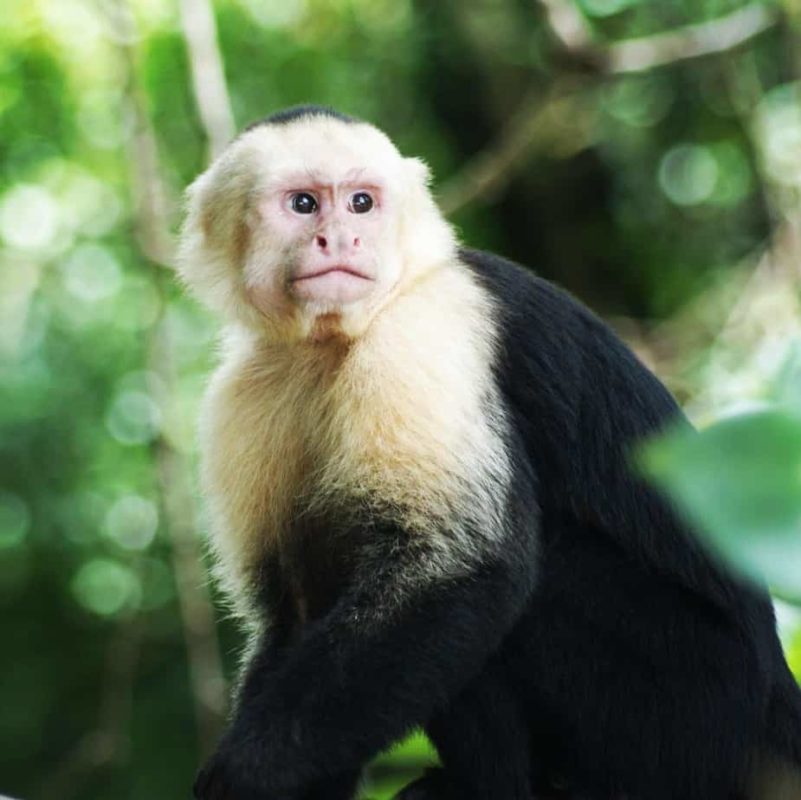
From the Masai Mara to Corcovado National Park, with NITGB you can witness some of the most spectacular wildlife on earth in a responsible manner.
Unique Accommodation
Glamping Accommodation in England
Glamping Accommodation in Wales
Hot Tub Accommodation in England
Hot Tub Accommodation in Wales
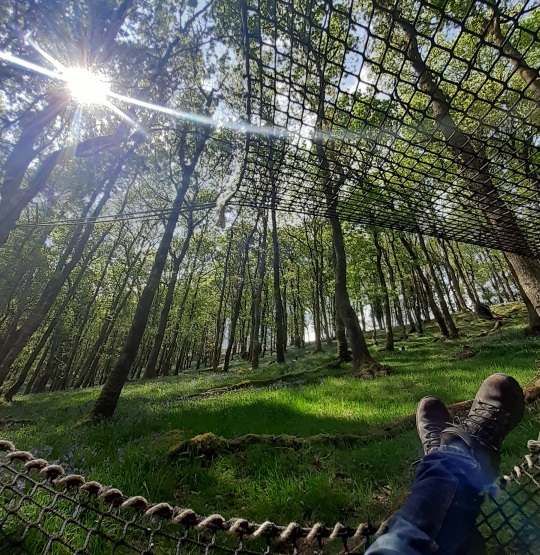
Discover unique accommodation that turns an ordinary weekend escape into a memorable, offbeat experience, whether in the UK or further afield.
- Call +44-203-048-3044 Agent login
What is Tourism Leakage?

Tourism is good for the world economy, right? It must be – in 2018, tourism contributed an estimated £1.3 trillion to the global economy . That is a lot of money. So it must stand to reason that communities with a lot of tourism stand to make a sizeable income. Right? Well, unfortunately not – largely due to a combination called tourism leakage.
Especially in developing nations, the vast majority of a holiday cost – as much as 95% in some places – ends up elsewhere. In this article, we’ll explore exactly what tourism leakage means, why it happens, and, most importantly, what you can do to prevent it while you’re travelling.
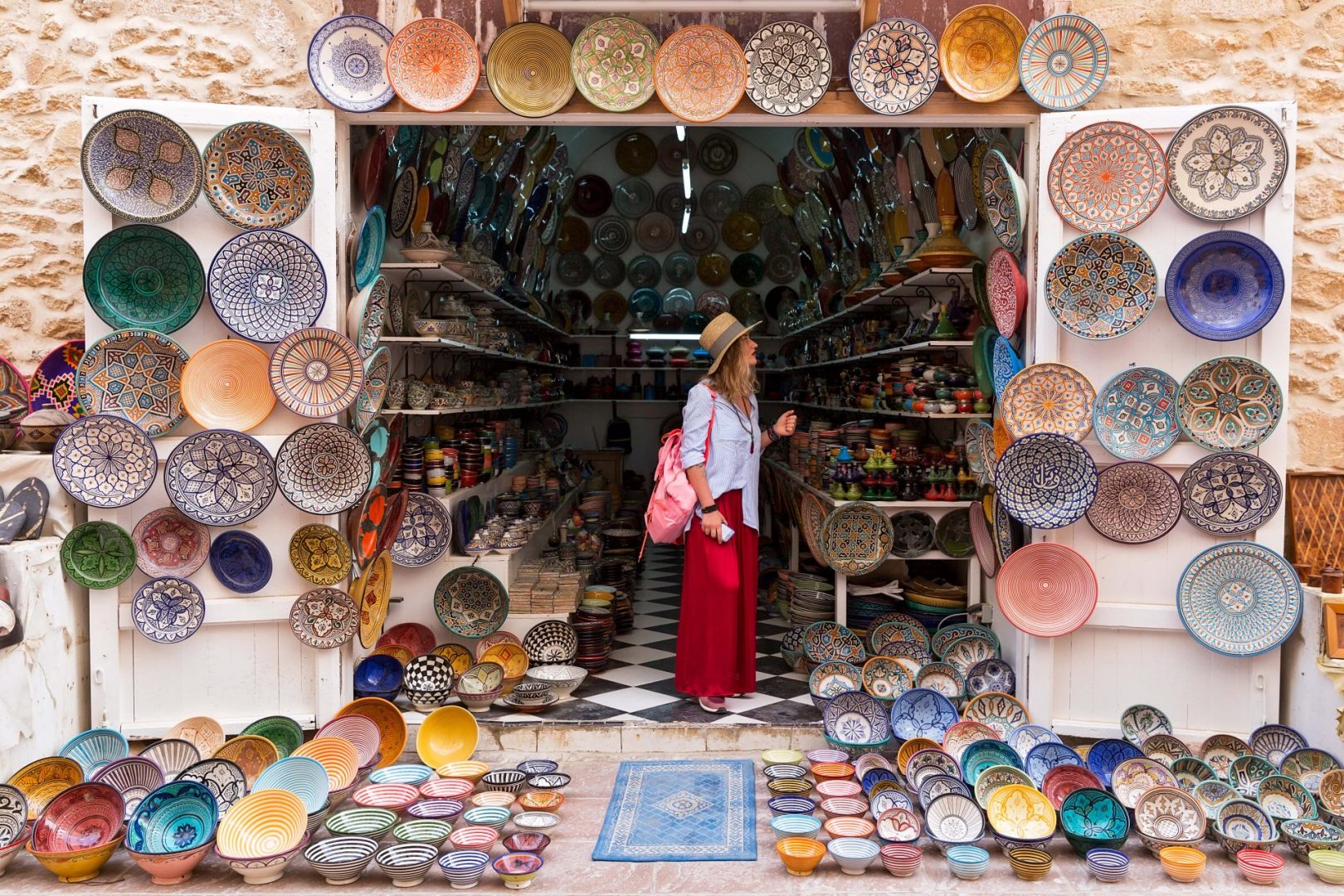
What is tourism leakage?
Tourism leakage is the idea that, of all the money you spend on a holiday, surprisingly little ends up in the pockets of the community you visit. Instead – for a number of reasons – it ends up ‘leaking’ out. From profits distributed to foreign companies (like airlines or resorts), to foreign imports to meet tourism demand, the actual amount of money that ends up where you think you’re spending it can vary wildly. But, the effects are particularly pronounced in developing nations, where, according to the UN’s Ocean Atlas:
On average, of each $100 spent on a vacation tour by a tourist from a developed country, only around $5 actually stays in a developing-country destination’s economy.
Ocean Atlas points to two key sources of tourism leakage: import leakage, and export leakage.
Import Leakage
This is when demand for certain products, generated by tourists, cannot be met by a local economy. So local suppliers have to look elsewhere, spending a significant proportion of their income on importing the goods tourists want.
Think about it like this. You touch down from a particularly long-haul flight, and all you want is a cold beer. There’s a bar in the airport – you could choose to buy a Heineken over a locally brewed and bottled beer . They’re similarly priced – the Heineken might be a little bit more expensive. But you know that, if you buy the local beer, most of your money will stay in the local community. Whereas, if you buy the Heineken, a major proportion of your money will be spent on the cost of importing.
Ocean Atlas says up to 50% of tourism income for developing countries is lost through import leakage. So, you choose to buy the local beer, you get to try something new, and you benefit the community while doing it.
Export Leakage
On the other end of the spectrum, export leakage is when foreign investors export profits they have made back to their home country.
Again, by way of example, imagine an international organisation buys a pristine strip of white beach in the Caribbean, and spends multiple millions of dollars on developing it in to a luxurious, all-inclusive resort. That’s a significant investment, and could represent a major risk to shareholders. So, the primary interest of that resort is to generate profit. Even though it employs local workers, and benefits directly from the natural beauty of the coastline, the money made is getting sent right back to the company’s HQ overseas.
And this example isn’t a fiction. In fact, a UN study in the Caribbean found that St Lucia lost as much as 56% of its tourism income to export leakage, while Jamaica lost up to 40%

Why is tourism leakage bad?
Apart from the obvious – the exploitation of local people, communities, and places for profit – tourism leakage has a number of negative impacts.
It fosters inequality
Tourism leakage is a snowball effect. If multi-national organisations are the only ones who can afford to invest in large-scale tourism infrastructure, but they keep removing all of the profits from the infrastructure they build. Well, nothing will change. In contrast, if travellers reduce their tourism leakage, they can support local communities to develop economically, reducing global inequality and helping these communities take their future in to their own hands.
It creates cultural erosion
If travellers are visiting a place, but demanding food from back home. If they will only stay in big resorts created by global companies. If they only buy from expensive foreign brands. There is very little room for local cultures to flourish or even exist. Locals become priced out of their homes, in favour of more profitable tourism provisions. Ultimately, that leads to a world that is far less vibrant, where global cultures are diluted because they don’t make enough money. However, when travellers actively seek local cultures, to learn about them, respect them, and experience them – then, those cultures flourish. We help to build a world that is better, brighter, and more diverse.
It leads to a worse holiday
And let’s not forget, tourism leakage is likely to create a worse holiday experience as well. If a resort is created and run by foreign interests, how likely is it that resort will actually represent the place you’re visiting? How likely is it to give a true flavour of the location, and show of everything that makes it so amazing? We’d say, very unlikely. Instead, choosing to stay in locally run accommodation and support local hosts gives a more genuine experience. It helps travellers get under the skin of their destination, and experience it as it actually is. It creates better holidays, and it supports local communities – win-win!

5 tips to prevent tourism leakage
One of the easiest ways to prevent tourism leakage – specifically import leakage – is simply to buy local. That means that, when you’re in a location, try to buy goods and services that are made or grown there. Often, tourism boards will have stickers or other certifications to demonstrate that something is produced locally – when you’re travelling somewhere new, it’s worth looking online to see if there is any such system in place. It can also mean actively seeking out local, independently owned brands, shops, or market stalls over large multi-national brands that you may be familiar with from back home.
Simply, buying locally is a great way to make sure the money you spend stays where you spend it. More specifically, it means people in the community you visit don’t have to spend lots of money importing expensive alternatives (which significantly diminishes their profit). And, what’s more, it’s an opportunity to experience even more of what that community has to offer.
In contrast, resorts and hotels are one of the largest causes of export leakage in travel. International organisations building hotels and then taking profits back to their headquarters in different countries means very little of your accommodation spend will actually benefit the community you visit. But whilst many travellers have come to know and trust these international hotel and accommodation brands, in reality, we’ve found the best places to stay are almost always run by locals . They have the in-depth knowledge of the place, and a genuine interest in sharing its secrets with you.
Plus, local accommodation is often more integrated into the local community, meaning the money you spend will have not just a deeper impact, but a wider one too.
Eating local means two things – supporting local restaurant, and eating local produce . Choosing to eat in a local restaurant is a no-brainer. You get to experience a new cuisine or delicacy, in an authentic way. Who knows, you might even discover a new favourite dish. But more than that, you are engaging with a local business and supporting the community you are visiting.
Eating local produce is a little bit trickier. It’s about making the choice to eat food that is in season in the place that you are visiting, and largely trying to avoid food that has to be flown long distances to get there. Catering to the different tastes of tourists can be incredibly expensive, not to mention environmentally damaging. So, acting to alleviate that pressure is just another step you can take to reduce tourism leakage. When you visit somewhere new, do some research to learn about the local cuisine and what food is currently in season.
Get out and about
If you take one thing away from this post, let it be this: the first step in preventing tourism leakage is to get out and about. Book trips and excursions – and if you can, book with organisations that work exclusively with local hosts. Get out of the hotel and discover the nearby town, village or city. Ask a manager at the hotel about the best sites to see and the best places to eat – seek out new adventures!
By simply setting foot outside of your accommodation, you’re already on the way to preventing tourism leakage. You’ll be engaging with everything this place has to offer, and ultimately, you’ll start to be more mindful of how something as small as where you buy your lunch can make a huge difference!
Travel informed
It’s always important to be an informed traveller whenever you can. So, when you’re visiting somewhere new, get some research under your belt before you go. Learn about local foods, and get excited about what you’ll eat when you’ll arrive. Discover local companies and brands that you might be interested in. You might even want to learn about some of the challenges facing the place that you’re visiting.
By doing this, you’ll start to build familiarity with your destination, so that you’ll be looking forward to buying local, staying local, eating local, and getting out and about. It can seem like a daunting task, but even a quick search online will give you some pointers about the best local restaurants, businesses, and places so you can be smart with your spending while you’re away.
In reality, there will likely always be some level of financial leakage when we travel. In part, this comes down to the nature of international travel, and in part, it comes down to how we define ‘local community’ in the first place. But the good news is that, as a traveller, you have the power to significantly reduce leakage, and make sure more of your money directly benefits the communities you visit. By doing your research, and then making simple choices to buy, eat, and stay local, as well as making sure you get out and about, you’ll guarantee a better travel experience that has a positive impact on the people you meet and the places you go.

Join our community
Get off the beaten track and support local communities that you visit.
Sign up for inspiriation for your itinerary, new experiences and special offers.
- Visit Oyster on Facebook!
- Visit Oyster on Pinterest!
- Visit Oyster on Instagram!
- Visit Oyster on Twitter!
- Subscribe to stay up to date!
Yes, send me expert tips and deals!
By proceeding, you agree to our Privacy Policy and Terms of Use .
- Subtract one room 1 Rooms Add one room
- Subtract one adult 2 Adults Add one adult
- Travel Tips
The Dark Side of Tourism in Thailand
See recent posts by Kyle Valenta
When it comes to dream destinations, Thailand is way up there on the list for most travelers -- and with good reason. It's flanked by some of the world's most stunning beaches, has miles of untouched jungle, is laced with ancient temples, has inimitable nightlife, and has legendary fiery cuisine. All of this has been drawing vagabonds, expats, travelers, and artists for decades, enchanted by the mix of peace and chaos, the spiritual and the unflinchingly capitalist, tranquil nature and urban hedonism. That enthusiasm on the part of travelers has made tourism incredibly important to the Thai economy. According to Thailand's Tourism Authority , the industry contributes over $70 billion to the nation's economy every year.
The truth is that most tourists visiting Thailand come away with nothing but amazing memories, great tans, and a whole lot of stories. However, there is an underbelly to the tourism trade in Thailand -- as there is in most destinations around the world. Some of that underbelly can be particularly unsavory, and -- at times -- even deadly. What follows are just a few issues that have put Thailand's tourism business in the news recently. All are worth considering when you're planning your trip to make sure you don't find yourself in a dangerous situation, or unwittingly supporting practices that victimize the planet's most vulnerable.
Hotels in this story
Is Koh Tao Really Death Island?

anson chu/Flickr
What little unsavory news that Westerners hear about Thailand is often focused on the fates of a small minority of foreign travelers who have met tragic ends. However, other sectors of Thailand’s tourism industry have problematic effects on both local Thai people and immigrants from Thailand’s impoverished neighbors in Myanmar , Cambodia , and Laos . Migrant workers and refugees are made scapegoats for crime and unemployment rates around the world — including right here in the United States. The same holds true in Thailand, though perhaps in ways you may not realize.
You’ve likely seen pictures of Kayan women, who famously elongate their necks to mind-bending lengths using heavy brass coils as they age. The group arrived from Myanmar, fleeing violence and persecution there at the hands of a regime bent on ethnic purity, and were granted refugee status in Thailand. However, the Kayan people are forbidden Thai citizenship, and their rights within their new home country are extremely limited. This, of course, leads to issues like exploitation and, in some cases, trafficking.
These days, the Kayan in Thailand live in designated villages that are dubbed “authentic,” but are often no more than a repeated performance put on by members of the community because they have no other choice. In a piece published in the New York Times in 1997, journalist Andrew Drummond revealed that some Kayan tribespeople who were forced to inhabit Thaton, near the Myanmar border, had been kidnapped and subjected to sometimes fatal abuse to prevent them from leaving.
Kayan tribespeople have organized themselves through agencies like the Karenni Refugee Committee, which now works with The Border Consortium to help ensure humanitarian needs are met for the refugee communities in Thailand’s northwest. Over 10 years later, though, the BBC reported that the UN was considering boycotts to the villages, as there were substantiated reports of refugees being refused the right to resettle outside of Thailand. This is, in part, because the villages are often settled on privately owned Thai land and are major sources of income for the landowners, who are often powerful members of the local Thai community.
However, if tourists do stop arriving, what little income the Kayan are given to live off of disappears, and an even more bleak future may be in store. According to a website that purportedly represents the Kayan people inhabiting Huay Pu Keng, “They are reliant on tourists for income. Most of their income is generated from selling their woven scarves and bags to visitors.”
Sex Tourism and Human Trafficking

Bangla Road. Patpong Night Market. Soi Cowboy. Walking Street in Pattaya. Thailand is flush with red-light districts, some of which are the world’s most notorious . To be clear, we aren’t going to shame the workers themselves, many of whom are funneled into a way of life for reasons well beyond heir own control. But there are guilty parties involved on many fronts when it comes to the link between sex work and human trafficking in Thailand — and most of the guilt rests with tourists themselves.
According to UNHCR , the UN’s refugee agency, as of 2013 there were at least three million migrant workers in Thailand. And while a significant portion of that number is involved in Thailand’s fishing industry and other factory work — which doesn’t mean that they’re free from exploitation — men, women, and children are also channeled into Thailand’s booming sex industry. As the UN states, “Conservative estimates put this population numbering in the tens of thousands of victims.” Another UN agency, the Action for Cooperation Against Trafficking in Persons, reaffirms this claim , noting that, “Sex tourism continues to be a factor, fueling the supply of trafficking victims for sexual exploitation, and at the same time corruption, limiting the progress of anti-trafficking efforts.”
The situation is due, in part, to the relative wealth of Thailand in a region where its neighbors have some of the lowest GDPs in Asia. Those same countries also have histories of being ruthlessly bombed by the United States (in the cases of Cambodia and Laos), violent foreign interventions (Vietnam), the abrupt end of colonial systems of subjugation (Laos, Vietnam, Cambodia, and Myanmar), and repressive regimes bent on ethnic cleansing (Myanmar). And while time goes on, Thailand has remained something of a beacon in the region. However, given Thailand’s aforementioned dependence on international tourism as a huge source of revenue, there’s little incentive to aggressively enforce laws against trafficking and sex work.
And in case you needed proof about the role of Western travelers as fuel for this industry, simply take a walk through Patpong Market any night of the week and take note of the languages being spoken by the patrons at the ping-pong shows and strip clubs (which are essentially brothels). It won’t be Thai, Khmer, Lao, or Vietnamese that you hear.
Elephant Sanctuaries and Other Exotic Animal Attractions

Christian Haugen/Flickr
In 2016, the happy veneer of Thailand’s animal-centric tourist activities was ripped right off when the Thai authorities raided the once-famous Tiger Temple in the nation’s western Kanchanaburi province. While arguments were made that the temple’s monks and the staff were actually providing the 137 tigers living there with better lives than those in state-run zoos, it was the discovery of animal pelts and other products common on black markets that struck a nerve with those who heard the news. The temple was making around US$15,000 every day, according to estimates provided by Al Jazeera , as tourists flocked there for pictures with seemingly docile grown tigers as well as tiger cubs. Even more, it seems, was being made off the sale of tiger body parts on the Chinese market
Up north, in Chiang Mai , elephant rides are a popular tourist activity, though this, too, is ethically questionable at best. As Al Jazeera notes , this begins with smuggling baby elephants into the country and continues with brutal training regimes in which the animals are subjected to all manner of abuse. Additionally, the animals are often kept chained and otherwise confined between rides, during which they are subject to often indelicate treatment by mahouts. This is to say nothing of family syndicates that control the smuggling of elephants and who intimidate those working to improve the lives of animals in captivity.
You should do a substantial amount of research before you visit any animal-related destination in Thailand, as even those that have chosen to designate themselves as sanctuaries may be that in name only. Opt for animal encounters that take part in rehabilitation of wildlife or formerly abused animals for something that puts you in touch with nature without doing it harm. These include Elephant Nature Park and Boon Lott’s Elephant Sanctuary. Just to be clear, you won’t be riding the elephants in either of these venues — that’s a practice you should avoid if you’re looking to actually help these creatures have better lives.
Should You Still Visit?

Top 11 Las Vegas Hotels on the Strip for Every Type of Traveler
By Christina Vercelletto

12 Things to Ask for When You Check Into Your Hotel Room
By Toby Orton

- Travel Safety
The 11 Safest Travel Destinations in the Caribbean Right Now
By Lilly LeClair

7 Amazing Mother-Daughter Trips to Take This Year
By Megan Johnson

Foreign arrivals in Thailand surpass 10-million mark this year

Thailand welcomed 10,723,953 foreigners between January 1 and April 14, marking a 43% jump year on year, the Tourism and Sports Ministry announced on Monday.
The revenue generated by these tourists has come in at around 518.04 billion baht, it added.
Over this period, China topped the arrivals list with 2,031,552, followed by Malaysia (1,391,057), Russia (695,624), South Korea (619,186), and India (546,935).
Tourism and Sports Minister Sudawan Wangsuphakijkosol said the long Eid al-Fitr holidays from April 8 to 14 contributed to the arrival of 96,000 tourists from Muslim nations over the past week.

Sudawan said the number of tourists from Malaysia had risen by 78,297 from the previous week to 150,390 during April 8-14, putting them on the top of the week’s arrivals list.
They were followed by 148,653 Chinese tourists, 36,056 Indians, 34,671 Russians and 30,427 South Koreans, Sudawan concluded.

Culture Ministry holds events to mark Bangkok’s 242nd anniversary as capital

Condo owner fumes after foreign tenant flees, leaving garbage-filled room

As fighting intensifies in Myanmar, over 3,000 people given shelter in Tak

Part of Kanchanaburi Motorway open for toll-free travel on weekends

Thaksin can't help Pheu Thai win next election, most poll respondents say
- International edition
- Australia edition
- Europe edition
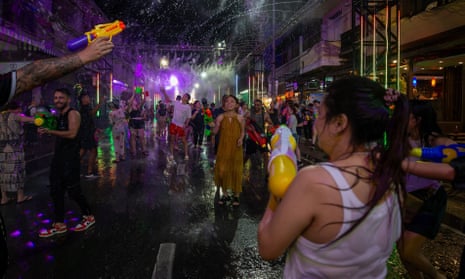
As Thailand revels in Songkran water fights, tourist hub Samui suffers through drought
The resort island is facing days without running water, even as the country celebrates new year with water fights
A cross Thailand , people are getting ready to take to the streets for a giant water fight to mark the new year. Roads will be lined with vendors selling water pistols, businesses will put out buckets of icy water for refills and no passersby is safe.
What began as a tradition of the Songkran festival to sprinkle water on the hands of elders, in a symbol of cleansing and reverence to mark the new year, has evolved into huge water fights that draw tourists from across the world. But on the tourist resort island of Samui, the water fights and celebrations bely a long running problem: the island is parched. Residents say taps can stop running for days, causing disruption to businesses and daily life.
“The water hasn’t run for two and a half days now,” says Wachirawut Kulaphetkamthorn, who owns a barber shop in Lamai, Samui and has been unable to use his shower. “Last year, the water came every other day, but this week, it hasn’t run for 2-3 days in a row.”
“The restaurant nearby could not open the shop because there was no water.”
Wachirawut has resorted to buying five tanks of water. “I don’t have any backup plan. I think I just need to buy more water when it’s gone. I can’t do anything. I can only complain on Facebook,” he says. One local restaurant owner says he fills his tanks when the water is back on and this can usually see him through the two or three days when the taps dry up. But if the shortages last longer, he is forced to use expensive drinking water.

“The vendor next to my shop, when they don’t have water, they need to change to takeaway orders instead because there’s no water to clean the plates,” says Nat, who asked to give just his nickname. Big hotels are able to pay for private water supplies, which means tourists are unlikely to be affected and water fights will go ahead, according to Ratchaporn Poolsawadee, the president of the Tourism Association of Koh Samui. But this all adds an extra financial burden to the sector as it recovers from Covid.
Water on the island is derived from wetland areas, as well as an undersea pipeline that supplies 21,000 cubic metres of water a day, well short of the between 31,000 to 33,000 cubic metres of water needed a day, says Ratchaporn.
Poor planning has meant that infrastructure hasn’t kept up with the number of people migrating to work on the island, or the rapid development of luxury resorts, golf courses and spas that consume large volumes of water.
Ratchaporn says there are hopes a reverse osmosis system, and an additional pipe supplying water from Surat Thani will ease the problem, though, for now, the dry weather is an added problem. Thailand is currently experiencing extreme heat due to the El Niño phenomenon, which is associated with hotter, drier conditions across the region. The Thai public health ministry has warned of the risk of heatstroke during the Songkran period, as temperatures have reached record levels in some areas. Despite the risks, the government hopes this year’s Songkran festival, which marks the Thai new year, will give a much-needed boost to the tourism sector. This year’s celebrations have been extended from the usual three days to three weeks, after the festival was recognised as an Intangible Cultural Heritage event by Unesco. In Samui, businesses are also extending the celebrations to encourage tourists to stay longer, says Ratchaporn, offering events including orchestral concerts and foam parties – which use less water than a traditional water fight.
“It is high season and [Songkran] is also one of the cultural attractions for the period,” says Ratchaporn.
He says businesses and authorities will make sure people have a chance to splash in water – even if this brings added costs.
“Even if we don’t have water. It’s like … Christmas, no matter if you don’t have anything you will at least try to provide your family with a cookie and warm milk.”
- El Niño southern oscillation
Most viewed
Thailand’s Tourist Towns Deal With Their Own Russian Invasion
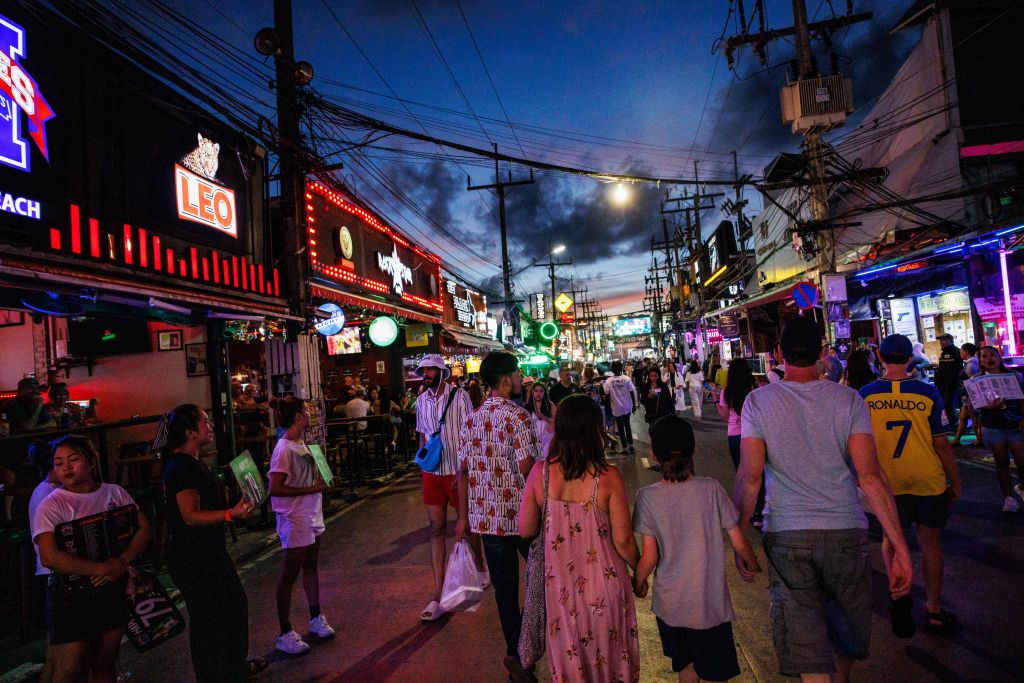
I t’s just past 11 p.m. on Phuket’s neon-festooned Bangla Road and revelers are out in force, though the heady atmosphere is distinctly more Sochi than Southeast Asia. TVs overhanging the sprawling beer bars show ice skating instead of soccer; Cyrillic signage proliferates; and Russian-speaking touts dispense flyers for pole-dancing clubs exclusively featuring women from former Soviet republics. “Russians, Ukrainian, Belorussian, Kazakhs,” says one tout in dark Ray Bans and a skin-tight Armani polo shirt. “We have them all here.”
The war in Ukraine has entailed an incalculable human toll, while roiling markets, disrupting supply chains, and sending inflation soaring across the globe. But in Thailand, the two-year-old conflict is also having a profound social effect despite being over 4,000 miles away. While many Western nations have shut out Russian air travel in response to Vladimir Putin’s full-scale invasion of Ukraine, Thailand sees Russian arrivals as key to reviving its pandemic-ravaged tourism industry. In October, Thai Prime Minister Srettha Thavisin extended 90-day visas upon arrival for Russian passports, insisting in a February interview : “We’re not part of the [Ukraine] conflict. We are neutral.”
Read More: 5 Takeaways from TIME’s Conversation with Thai Prime Minister Srettha Thavisin
Last year, Russians ranked top for tourist arrivals in Thailand from outside of Asia with 1.4 million visitors. Meanwhile, Russians were top overall on the southern resort island of Phuket, which has long been a favorite haunt. Last July, Russian Foreign Minister Sergey Lavrov visited Phuket to inaugurate a new consulate to cope with surging visitor numbers. A month later, the Phuket Tourist Association sent a delegation to St. Petersburg and Moscow seeking to court even more vacationers.
In the first three months of this year, 366,095 Russians arrived at Phuket International Airport, almost double the same period of 2023 and transforming the island’s commercial and social life. (That figure doesn’t include the significant number who transferred via Thailand’s main gateway of Suvarnabhumi International Airport in Bangkok.) But while a boon for the macro economy, the influx has chafed with locals who increasingly complain that Russians are stealing jobs and upsetting cultural mores. Across Thailand, lurid headlines such as “ Rabid Russian assaults police team in Phuket after going berserk at a city centre hotel ” and “ Russian tourist kicks pregnant Thai woman after asked to leave shoes outdoor ” are both a symptom and cause of alarm. (However, transgressions involving New Zealand , Swiss , and Portuguese nationals admittedly proliferate also.)
“Russia and Thailand are so different and sometimes they don’t understand Thai law and culture,” Lieut. Colonel Akachai Siri, chief inspector of Phuket Tourist Police, tells TIME. “Sometimes they break the law and they don’t recognize we have law enforcement.”
Nevertheless, Thailand’s Russian incursion appears here to stay. Other than the preferential visas, sanctions on Russian air carriers and reciprocal bans on Western airlines have slashed the destinations where Russian nationals can escape their frigid winter, making already-popular Thailand an easier choice. And then there are the not inconsiderable numbers fleeing economic doldrums and a war of choice that they had no part in choosing—not least since the Kremlin has ramped up military conscription amid mounting casualties .
“That was the final straw for us,” says Mark, a Russian who fled to Thailand with his boyfriend after an initial draft announcement in September 2022 and asked that TIME use a pseudonym for security. “We understood we can’t go back because anyone can be called to the army and just die in the war.”
As a result, the number of Russians choosing to stay in Thailand long-term is soaring. Beyond 90-day visas upon arrival, thousands are applying for one-year business or education visas. Arnold, who asked that TIME use only one name for fear of reprisals in his homeland, moved from Moscow to the Thai resort town of Hua Hin permanently last year and has noticed an increase in what are colloquially termed “ relocants ” fleeing the “various negative things which are going on back home.”
The affluent are acquiring luxury cars and yachts and renting or purchasing villas. Phuket’s plush Laguna beachfront complex of villas, ornamental lake, and 18-hole golf course is now dubbed “Little Moscow,” says Bhummikitti Ruktaengam, advisory chairman to Phuket’s Tourist Association. Over half of all residents across its 1,000 acres are Russian, according to the Laguna real estate management office, which employs two native Russian speakers to deal with the shifting demographic. Across Phuket, real estate prices have bumped some 20% owing to the Russian influx, says Bhummikitti.
The incursion has also increased pressure on Akachai’s Tourist Police, which has only 60 officers to assist the 2,000-odd regular Royal Thai Police and 60 dedicated Immigration Police across both Phuket and the larger adjacent province of Pha Nga. In addition to swelling tourist numbers, whereas 60% of tourists before the pandemic traveled on tour groups with guides and agents on hand to smooth any problems, today, 70% are independent travelers, which means the Tourist Police are increasingly called to mediate all manner of conflicts.
Relaxed entry requirements have also attracted a criminal element. In early February, Phuket police arrested five suspected Russian gangsters for the kidnapping and extortion of over $800,000 in cryptocurrency from a Belarussian couple that Akachai says was retaliation for a financial dispute back home. And last month, a 42-year-old Russian man was found stabbed to death in a rented house that was being used as a cannabis farm. The chief suspect is a Tajikistani man who fled Thailand for Turkey just hours after the murder.
Yet Akachai says most crimes relate to illegal work involving Russians determined not to return home while the war rages but without the means to support themselves indefinitely—not least since international banking sanctions have rendered accessing savings more difficult. Many Russians have set themselves up as unofficial tour guides, car and motorbike rental services, real estate agents, hairdressers, or even sex workers, advertising online via Telegram groups.
Yet not all aspects of the phenomenon are troublesome. Other than Russians, a significant number of Ukrainians have fled their war torn nation for Thailand, potentially creating a tinderbox atmosphere. But Akachai says he has not encountered a single skirmish or negative incident between the two nationalities in Phuket. Yury Rozhkov, 46, a Russian national who works for a travel agency in Bangkok, says he regularly meets Ukrainians staying in his apartment building and relations are nothing but cordial.
“They understand it’s Putin, it’s not Russia, Russian people are different,” he says. “And I’m sure Russians who have money to travel to Thailand do not support Putin and the war in Ukraine.”
In Hua Hin, Arnold is a member of a Russian-language Telegram group with more than 4,500 members from across the former Soviet bloc, but he says he cannot recall a single politically charged message among the 400 or so posted every day. “99.9% of discussions are where to find the best pad thai, current prices in the local market, how to rent a car, or where to get a vaccine,” he says.
Perched by the main gate of Phuket’s Laguna resort, the d’Odessa restaurant serves Ukrainian syrniki pancakes and smoked salmon croissants slathered with gold leaf. The tablet menu has options for Ukrainian, English, and Russian—and staff say the majority of clientele speak the latter. “There are many Ukrainian restaurants filled with Russians in Phuket,” says Bhummikitti.
Ultimately, both sides caught up in this senseless conflict share a desire to stay out of harm’s way by whatever means necessary. Mark is still employed by his Russian IT company thanks to an understanding boss despite remote working being strictly against company policy. Every day he fears a draft ticket or internal enquiries by higher management could spell the end to that vital paycheck. If that happens, “I will try to find a local job or another [remote] job in Russia,” he says. “I will try every way I can not to go back.”
More Must-Reads From TIME
- The 100 Most Influential People of 2024
- The Revolution of Yulia Navalnaya
- 6 Compliments That Land Every Time
- What's the Deal With the Bitcoin Halving?
- If You're Dating Right Now , You're Brave: Column
- The AI That Could Heal a Divided Internet
- Fallout Is a Brilliant Model for the Future of Video Game Adaptations
- Want Weekly Recs on What to Watch, Read, and More? Sign Up for Worth Your Time
Write to Charlie Campbell / Phuket, Thailand at [email protected]

COMMENTS
AFP. September 21, 2021. More than 106 million travellers to Thailand had their personal details exposed online in August, a cybersecurity research company that discovered the data said Monday, but the leak was quickly plugged by authorities. The Southeast Asian nation is a popular tourist destination, drawing nearly 40 million visitors in 2019 ...
A Study of Tourism Leakage in Thailand. A study of tourism 'leakage' in Thailand estimated that 70% of all money spent by tourists ended up leaving Thailand (via foreign-owned tour operators, airlines, hotels, imported drinks and food, etc.). Estimates for other Third World countries range from 80% in the Caribbean to 40% in India.
Tue 21 Sep 2021 // 23:36 UTC. A database containing personal information on 106 million international travelers to Thailand was exposed to the public internet this year, a Brit biz claimed this week. Bob Diachenko, head of cybersecurity research at product-comparison website Comparitech, said the Elasticsearch data store contained visitors ...
The approximate levels of tourism leakage are "up to 40% in India, 70% in Thailand and 80% in Caribbean countries... A 2014 report from UNWTO cites UNEP stats which state that the approximate levels of tourism leakage are "up to 40% in India, 70% in Thailand and 80% in Caribbean countries due to factors such as foreign-owned operators, airlines ...
Bangkok: More than 106 million travellers to Thailand had their personal details exposed online in August, a cybersecurity research company that discovered the data said Monday, but the leak was ...
Thailand's tourism industry, once a beacon of economic prosperity, has experienced a rollercoaster of highs and lows. The late 1980s and early 1990s marked an era of unprecedented growth, with the country becoming a must-visit destination for travellers worldwide. However, this boom was not without its consequences.
More than 106 million travellers to Thailand had their personal details exposed online in August, a cybersecurity research firm that discovered the data said on Monday, but the leak was quickly ...
ore than 106 million travellers to Thailand had their personal details exposed online in August, a cybersecurity research company that discovered the data said Monday, but the leak was quickly ...
Developing countries see particularly large leakage, as outside interests dominate tourism. A 2014 UNWTO report puts leakage at "70% in Thailand and 80% in Caribbean countries due to factors such as foreign-owned operators, airlines, hotels and imported food and products." Dr. Minnaert continues: "The worst culprits to me would be cruise ...
But tourism needn't be leaky or destructive. Here's are five ways to increase the good your holiday can do this summer, put money in local people 's hands, and take the pressure off ...
The personal details of 106 million foreign tourists to Thailand have been leaked online, cyber security experts have discovered. The data was leaked in August, according to a report released on Monday (Sept 20) by British based cyber security firm Comparitech.. The company said it discovered a database containing the personal information of "any foreigner who travelled to Thailand in the ...
The data leak was reported to Thai authorities by a 'white hacker', and the information leak was plugged soon after. Unfortunately for the 106 million people who had traveled to Thailand since 2011, however, the information that was exposed included the person's full name, sex, passport number, visa type, arrival data and residency status.
Q2 GDP seen at 0.9% q/q sa vs +1.1% in Q1. Q2 GDP data due on Monday, Aug 15. BENGALURU, Aug 12 (Reuters) - Thailand's economy likely grew at its fastest pace in a year last quarter, thanks to ...
According to the UNEP (United Nations Environment Programme), for every 100 $ spent by a tourist on a holiday to a developing country, only 5$ remain in the host community. That's a tourism leakage of 95%. Another report quoted on the same web page says that…. "70% of all money spent by tourists ended up leaving Thailand (via foreign ...
The sector singularly contributed upto 21.9% of Thailand's GDP in 2019, and was a source of employment for at least 7 million people, in both the 'formal' and 'informal' sectors (though ...
Global slowdown, delay in government formation among risks. BANGKOK, July 31 (Reuters) - Thailand's economic recovery remained on track in June as the tourism sector expanded on higher foreign ...
Tourism leakage is the idea that, of all the money you spend on a holiday, surprisingly little ends up in the pockets of the community you visit. Instead - for a number of reasons - it ends up 'leaking' out. From profits distributed to foreign companies (like airlines or resorts), to foreign imports to meet tourism demand, the actual ...
The truth is that most tourists visiting Thailand come away with nothing but amazing memories, great tans, and a whole lot of stories. However, there is an underbelly to the tourism trade in Thailand -- as there is in most destinations around the world. Some of that underbelly can be particularly unsavory, and -- at times -- even deadly.
Despite the strong recovery so far, Thailand's tourism industry is still a long way from the pre‑covid levels when annual arrivals regularly exceeded 30m. The total number of arrivals in January-August this year is only 17% of that in the same period in 2019. The composition of arrivals by nationality sheds light on the cause of the weakness.
A study looking at tourism 'leakage' in Thailand estimated that 70% of all money spent by tourists ended up leaving Thailand (via foreign owned tour operators, airlines, hotels, etc.). Estimates made for other Third World countries range from 80% in the Caribbean to 40% in India. On average, of each US$ 100 spent on a vacation tour by a tourist ...
Phuket's tourism industry is undergoing an ongoing rebound, with last year's airport passenger arrivals edging towards pre-pandemic figures according to a new report from consulting group C9 Hotelworks. While hitting 7 million, it was still short of the 9 million mark set in 2019. This year the trend is continuing with 1.62 million arrivals to date in February, compared to 1.77 million ...
Thailand, this study aims to document and examine local-level strategies that have been employed in peripheral regions to reduce leakages. Northern Thailand is largely rural and poor, but it has become a popular tourist destination because of its natural and cultural attractions. Outside of a few major tourism hubs, numerous rural vil-
Thailand welcomed 10,723,953 foreigners between January 1 and April 14, marking a 43% jump year on year, the Tourism and Sports Ministry announced on Monday. ... Tourism and Sports Minister Sudawan Wangsuphakijkosol said the long Eid al-Fitr holidays from April 8 to 14 contributed to the arrival of 96,000 tourists from Muslim nations over the ...
Cruelty debate over zoo exhibition highlights complexities of elephant tourism in Thailand. Link Copied! Elephants Boon Thong, 40, Ronaaldo, 1.6, and his mother Lersu, 30, stand on a hillside near ...
A cross Thailand, people are getting ready to take to the streets for a giant water fight to mark the new year.Roads will be lined with vendors selling water pistols, businesses will put out ...
The reasons for the high leakage in peripheral tourism destinations are multifaceted. Some of the main proximate reasons are the lack of capital, local ownership, local employment and inability to link tourism to the local economy. ... Tourism in northern Thailand tends to focus more on ecotourism and cultural tourism than does the south ...
Last year, Russians ranked top for tourist arrivals in Thailand from outside of Asia with 1.4 million visitors. Meanwhile, Russians were top overall on the southern resort island of Phuket, which ...